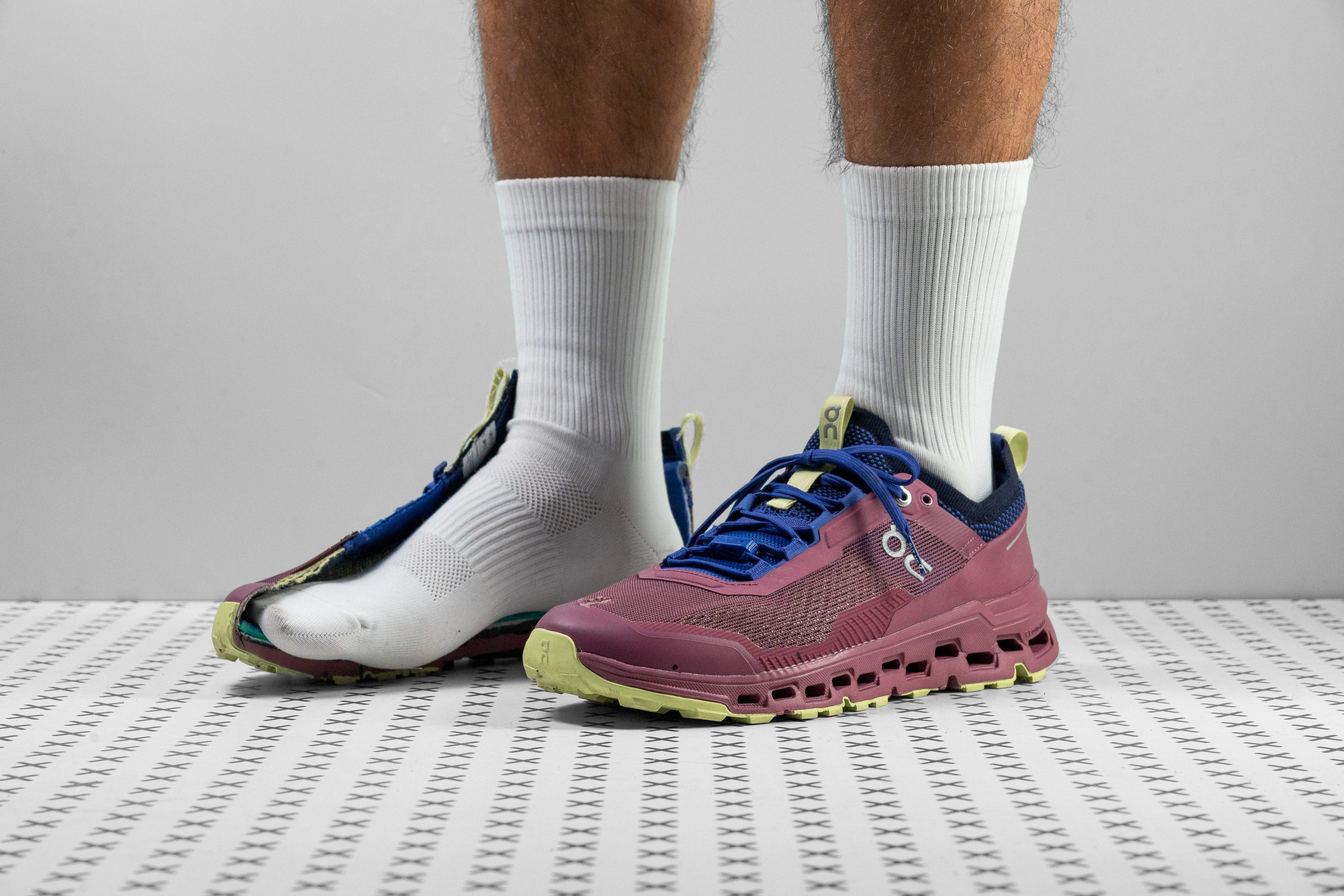Our verdict
Pros
- Exceptionally breathable
- Long-lasting Missiongrip outsole
- Handy lace tab
- Can handle faster paces if needed
- Versatile for hiking or walking
- Consistently stable ride
- Made with high-quality materials
- Smooth transitions
Cons
- A bit heavy for its use
- Not ideal for winter conditions
- Price might be steep for some
- Low forefoot cushioning
Audience verdict
- Top 27% in trail running shoes
- Top 30% in neutral running shoes
Comparison
The most similar running shoes compared
+ + Add a shoe | |||||
|---|---|---|---|---|---|
| Audience score | 89 Great! | 76 Bad! | 86 Good! | 89 Great! | |
| Price | $180 | $90 | $100 | $140 | |
| Trail terrain | Light | Light | Light | LightModerate | |
| Shock absorption | Moderate | - | - | Low | |
| Energy return | Moderate | - | - | Moderate | |
| Arch support | Neutral | Neutral | Neutral | Neutral | |
| Weight lab Weight brand | 10.4 oz / 296g 10.4 oz / 295g | 10.7 oz / 302g 9.9 oz / 282g | 9.9 oz / 282g 10.4 oz / 294.8g | 10.3 oz / 291g 10.3 oz / 291g | |
| Drop lab Drop brand | 10.2 mm 6.0 mm | 8.0 mm 8.0 mm | 9.2 mm 8.0 mm | 8.7 mm 8.3 mm | |
| Strike pattern | Heel | HeelMid/forefoot | HeelMid/forefoot | HeelMid/forefoot | |
| Size | True to size | Slightly small | True to size | Slightly small | |
| Midsole softness | Firm | Balanced | Balanced | Balanced | |
| Difference in midsole softness in cold | Small | Normal | Big | Small | |
| Plate | Rock plate | ✗ | ✗ | ✗ | |
| Toebox durability | Bad | Good | Bad | - | |
| Heel padding durability | Decent | Decent | Bad | - | |
| Outsole durability | Good | Decent | Decent | - | |
| Breathability | Breathable | Breathable | Moderate | Moderate | |
| Width / fit | Medium | Medium | Medium | Medium | |
| Toebox width | Medium | Wide | Wide | Medium | |
| Stiffness | Flexible | Stiff | Stiff | Moderate | |
| Torsional rigidity | Flexible | Moderate | Moderate | Moderate | |
| Heel counter stiffness | Flexible | Moderate | Stiff | Flexible | |
| Lug depth | 2.5 mm | 2.4 mm | 2.7 mm | 3.5 mm | |
| Heel stack lab Heel stack brand | 30.2 mm 27.0 mm | 32.2 mm 32.0 mm | 32.1 mm 30.0 mm | 27.2 mm 29.6 mm | |
| Forefoot lab Forefoot brand | 20.0 mm 21.0 mm | 24.2 mm 24.0 mm | 22.9 mm 22.0 mm | 18.5 mm 21.3 mm | |
| Widths available | Normal | NormalWide | Normal | NarrowNormal | |
| Season | SummerAll seasons | SummerAll seasons | All seasons | All seasons | |
| Removable insole | ✓ | ✓ | ✓ | ✓ | |
| Orthotic friendly | ✓ | ✓ | ✓ | ✓ | |
| Ranking | #107 Top 29% | #359 Bottom 6% | #191 Top 50% | #109 Top 29% | |
| Popularity | #267 Bottom 30% | #165 Top 44% | #315 Bottom 17% | #167 Top 44% |
Who should buy
We think the On Cloudultra 2 is a great choice for:
- Loyal On enthusiasts seeking a versatile shoe capable of tackling multiple distances and various paces across all terrains.
- Runners in search of a stable running experience who prefer not to opt for a wide platform and are comfortable with firm cushioning.
- Those who need a shoe with a built-like-a-tank outsole, perfect for devouring miles on flat terrain.
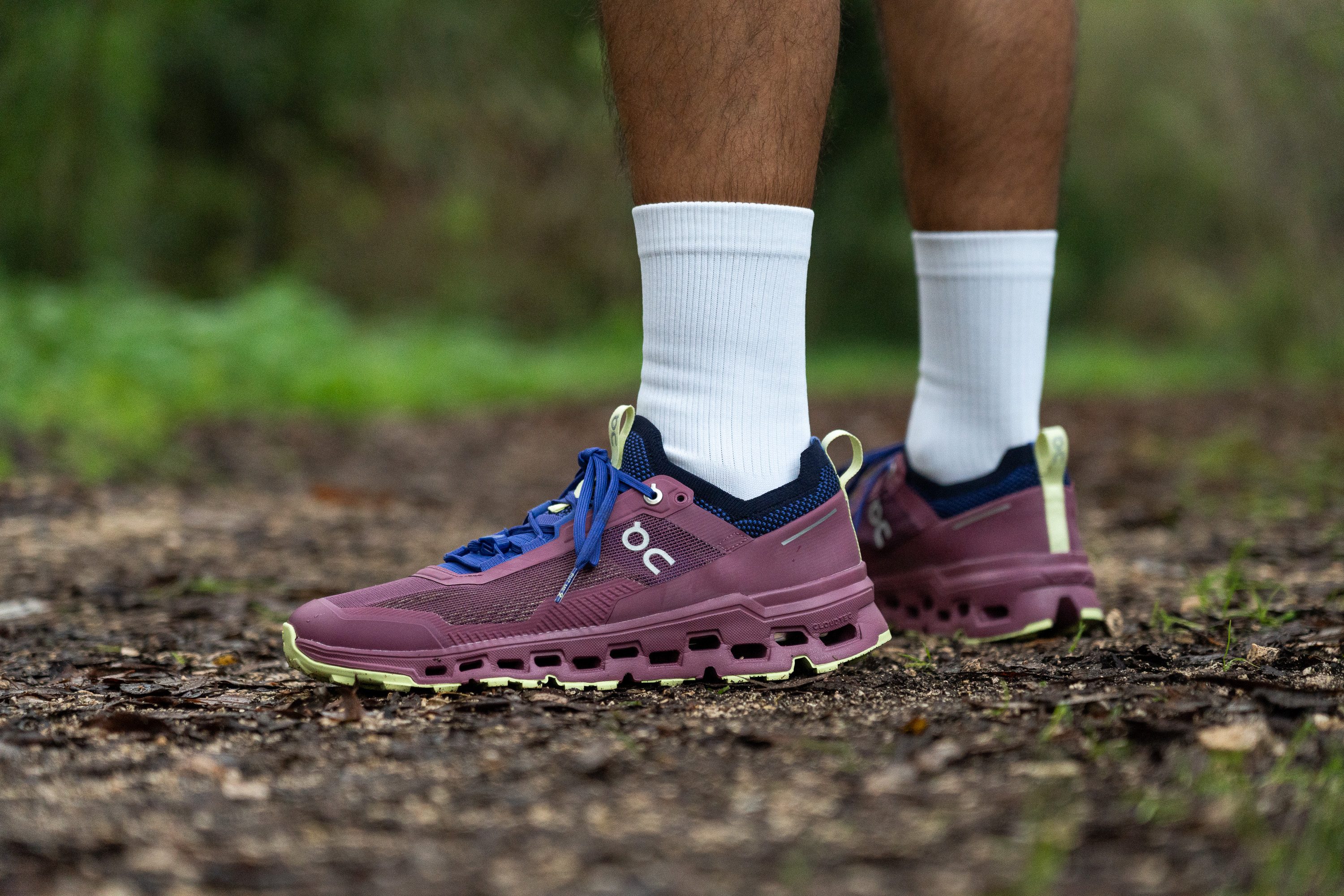
Who should NOT buy
If you're aiming for peak performance in your next ultra, the Cloudultra 2 might not be the best fit. Its Helion foam doesn't quite match up to the market's leading options, and our assessment is that other high-priced shoes like the Nike Ultrafly and the Saucony Endorphin Edge outperform it, especially with their superfoams and carbon plates.
Moreover, based on our analysis, the Cloudultra 2 might feel too heavy for many runners. Competing brands offer similar or more cushioning in much lighter packages, such as the Hoka Speedgoat 5.
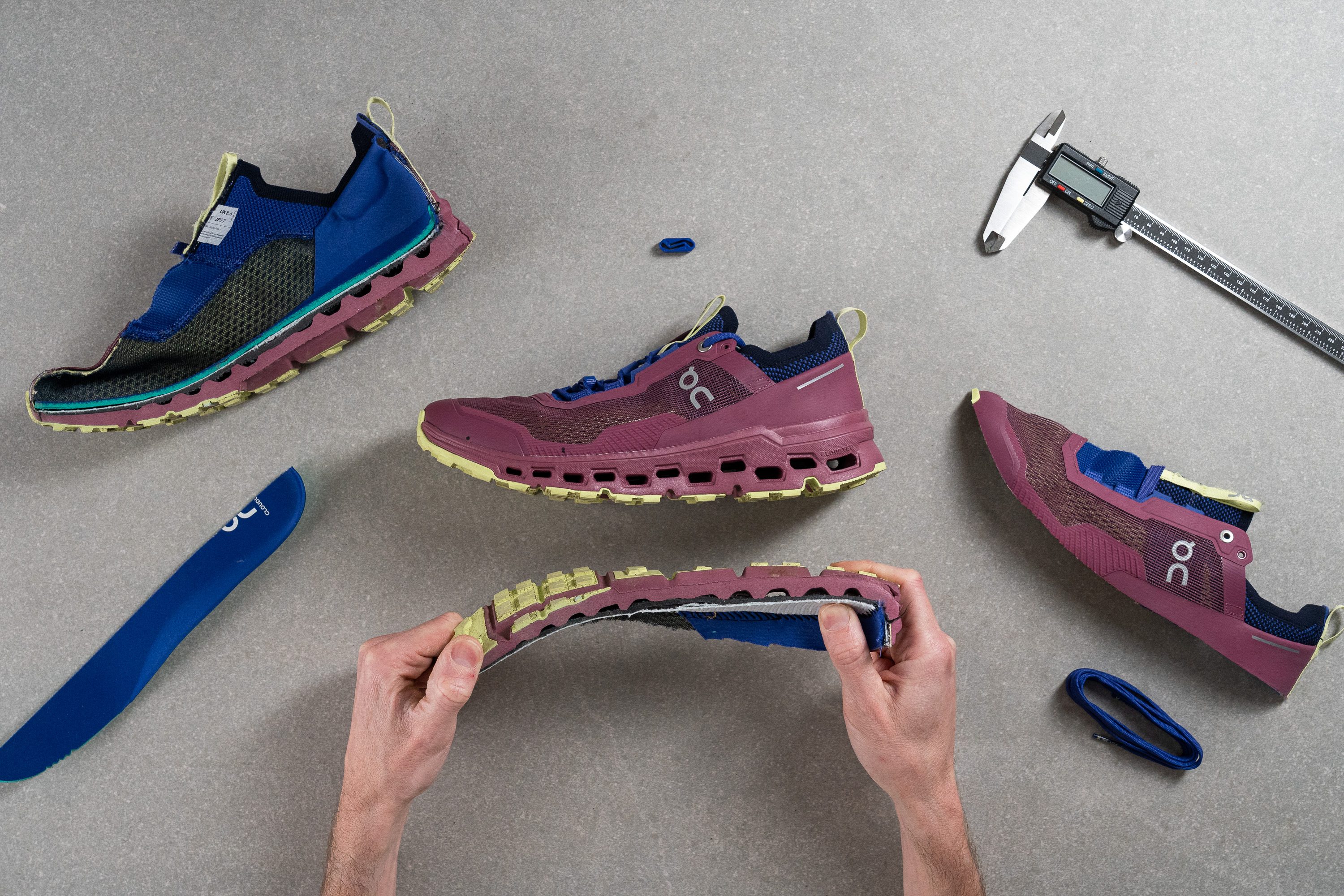
Cushioning
Shock absorption
Forefoot strikers should only consider this shoe if they’re after ground feel, as the 65 SA result in our ASTM F1976 test clearly shows limited cushioning. Conversely, the heel offers solid impact protection with a more forgiving 115 SA.

| Cloudultra 2 | 115 SA |
| Average | 122 SA |
Energy return
Energy return is better than in other On trail shoes, with 58.6% in the heel and 61.2% in the forefoot. That helps explain why it felt more responsive than the On Cloudsurfer Trail during our runs. Still, the lower stack height and added ground feel also contribute to that sensation.
| Cloudultra 2 | 58.6% |
| Average | 55.3% |
Heel stack
We approached the weight issue critically because this shoe can't really use the maximalist approach as an excuse. With only 30.2 mm of stack height, it's actually lower than the average shoe.
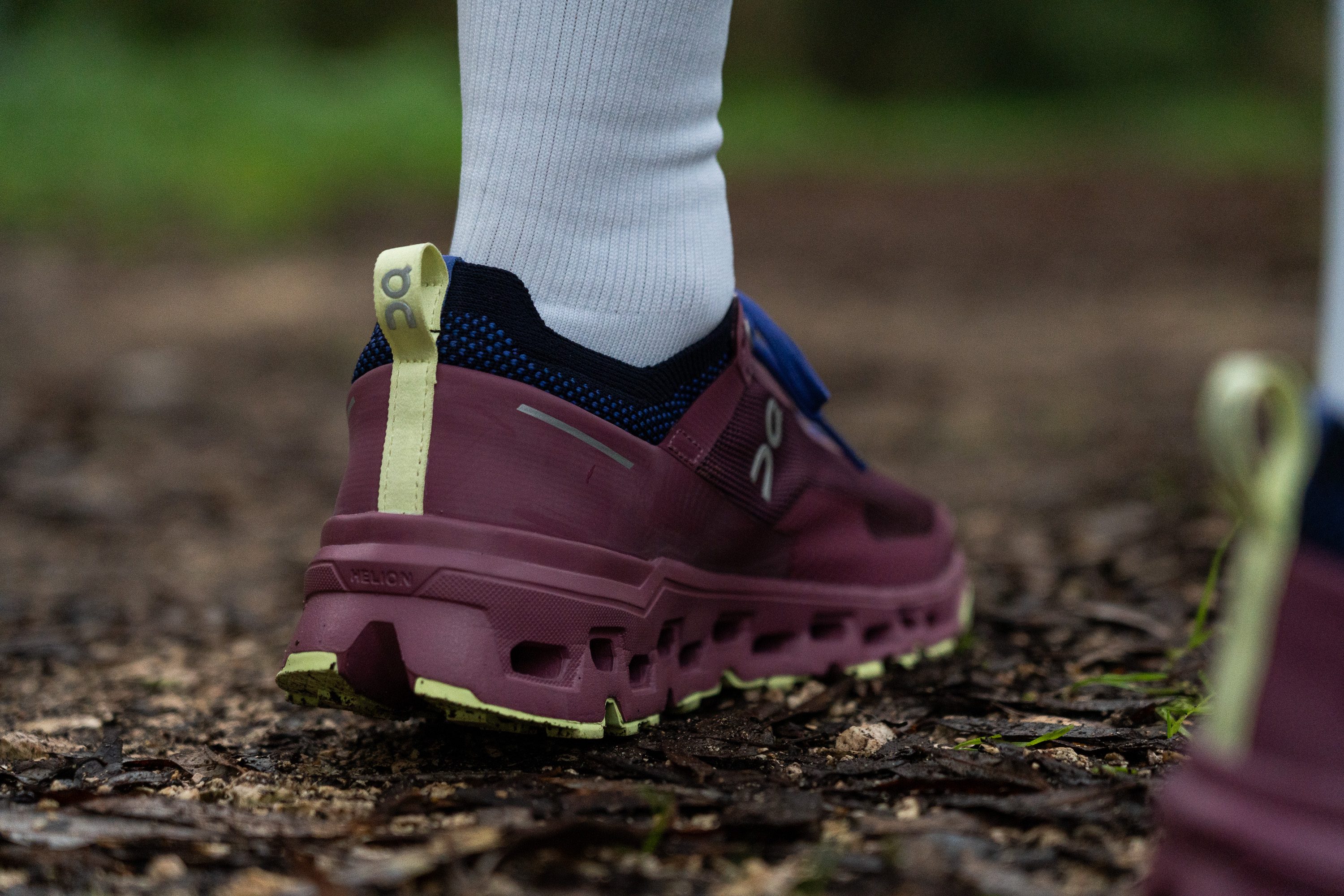
While this might seem too low by today's standards, it works fine if you're running on soft surfaces like dirt roads or loose gravel paths. However, for really long runs on asphalt or tarmac, we don't think they're the best choice, and something like the Hoka Mafate Speed 4 would be a better pick.
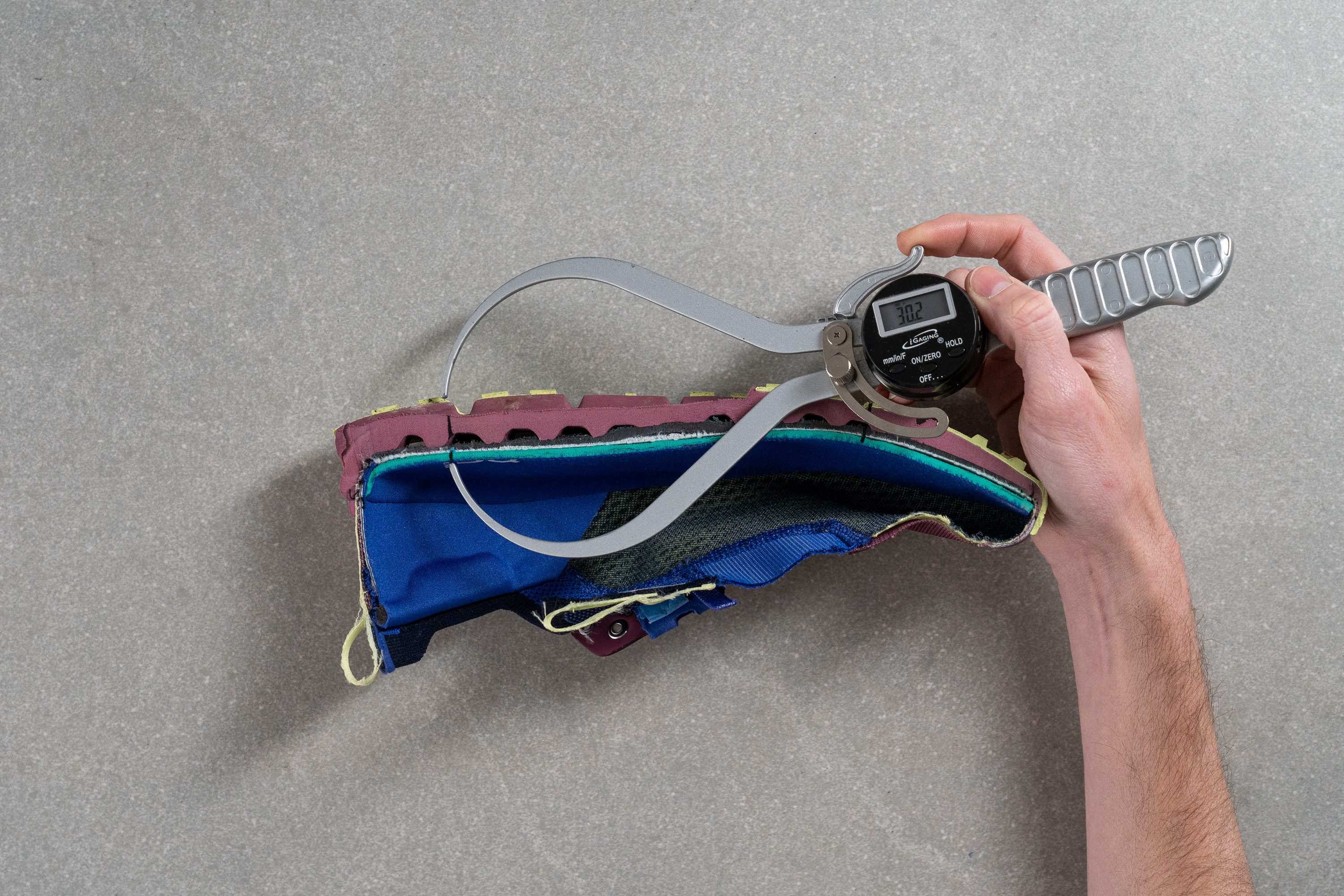
| Cloudultra 2 | 30.2 mm |
| Average | 32.6 mm |
Forefoot stack
In the forefoot, we also encountered a lower-than-average stack, measuring just 20.0 mm.
Our thoughts mirror what we mentioned about the heel—while it's great for soft surfaces, it falls short on harder ones, especially if you're a midfoot or forefoot striker.
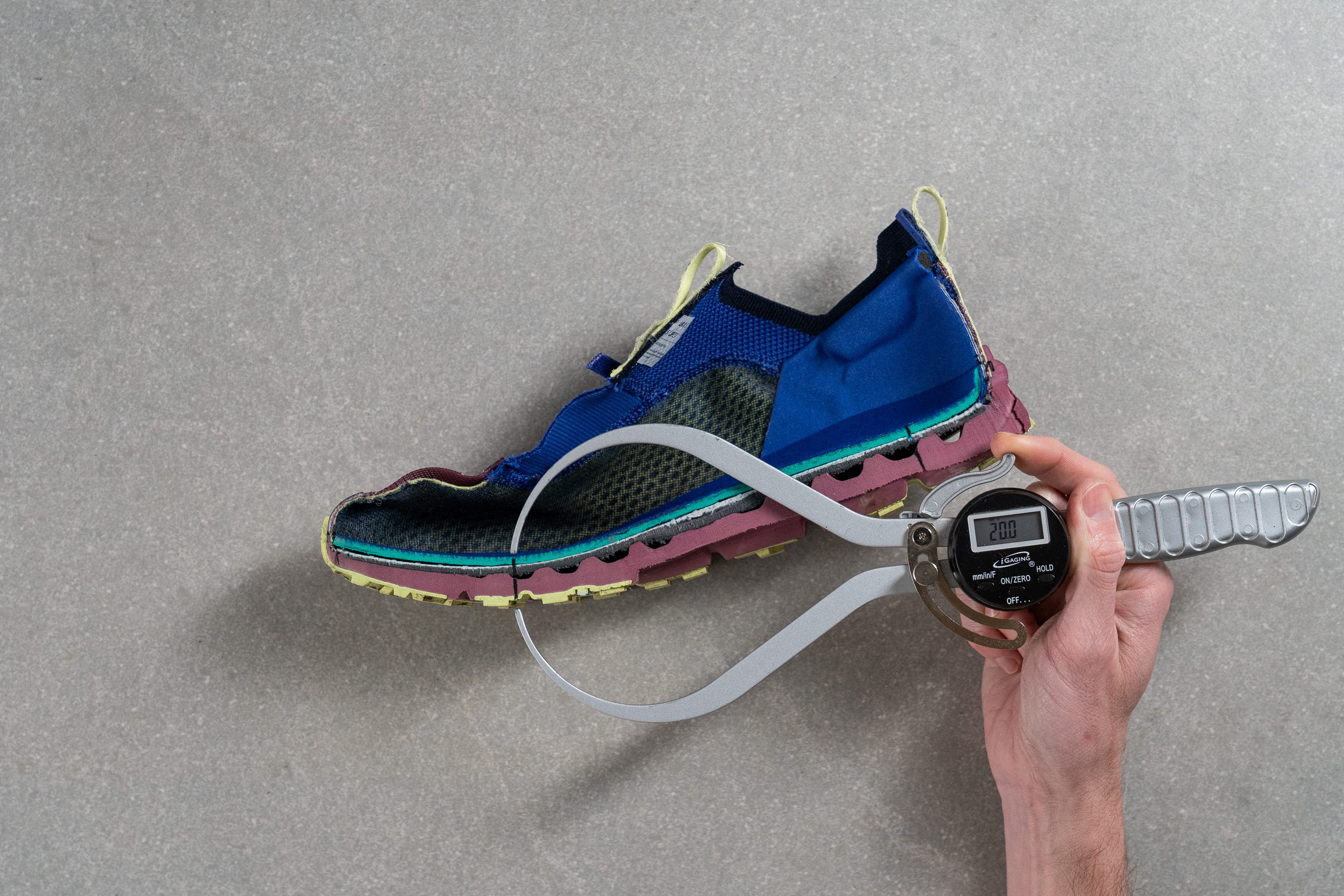
| Cloudultra 2 | 20.0 mm |
| Average | 25.1 mm |
Drop
After taking measurements at the official World Athletics points, we discovered a 10.2-mm drop.
This design seems more suited for heel strikers, a notion further reinforced by the low stack in the forefoot.
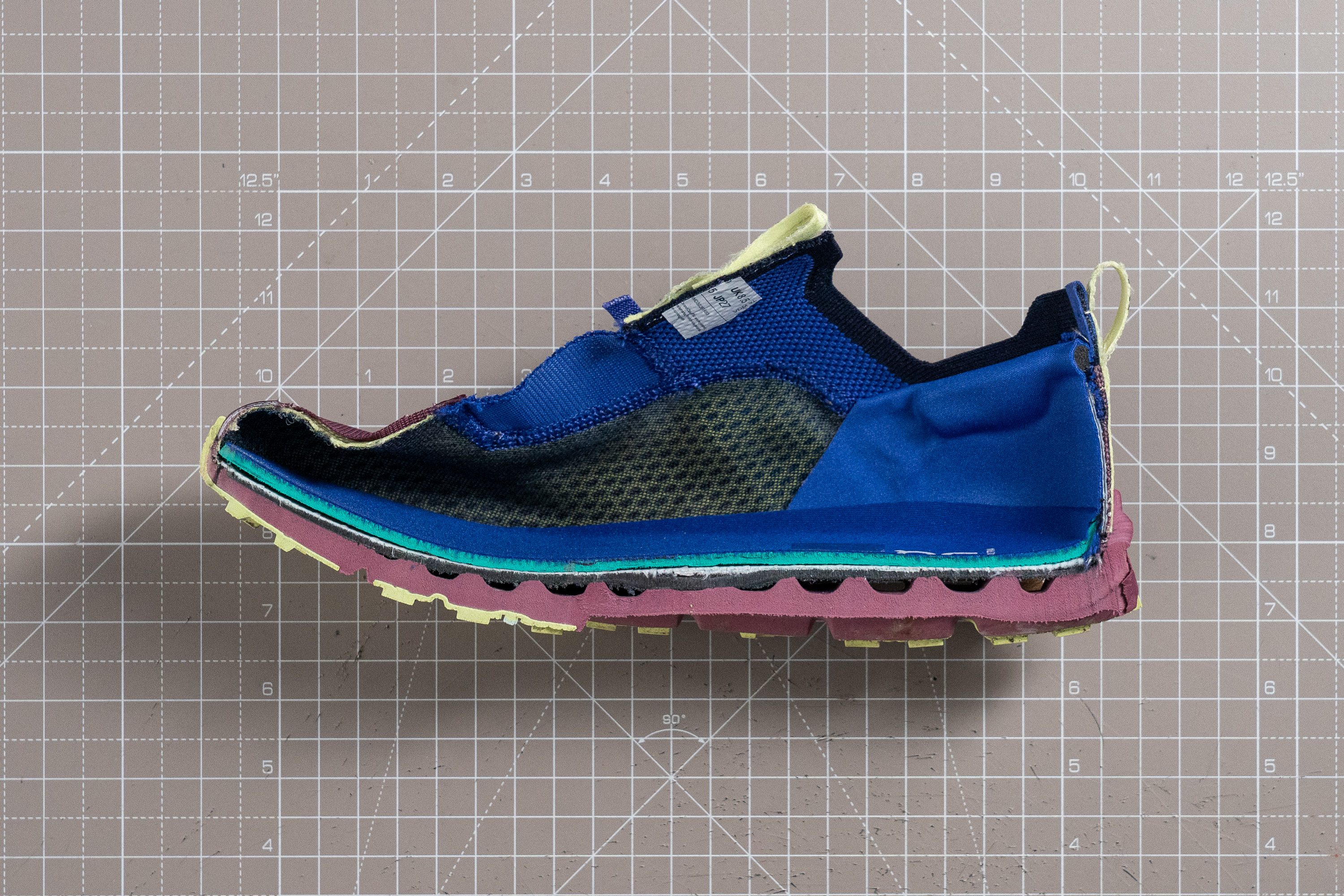
| Cloudultra 2 | 10.2 mm |
| Average | 7.6 mm |
Midsole softness
Now, let's circle back to the midsole. The Cloudultra 2 features On’s Helion foam, a combination of EVA and Olefin Block Copolymers. It's integrated into the Cloudtec cushioning, paired with the classic TPU Speedboard for enhanced energy return and stability.
Despite the collapsible Cloud system, the ride leans towards the firmer side (30.3 HA). So, if you're a fan of plush, marshmallow-like midsoles, this one might not be for you. However, as mentioned earlier, this shoe shines on soft surfaces where the firmer midsole really seems to make sense for us.
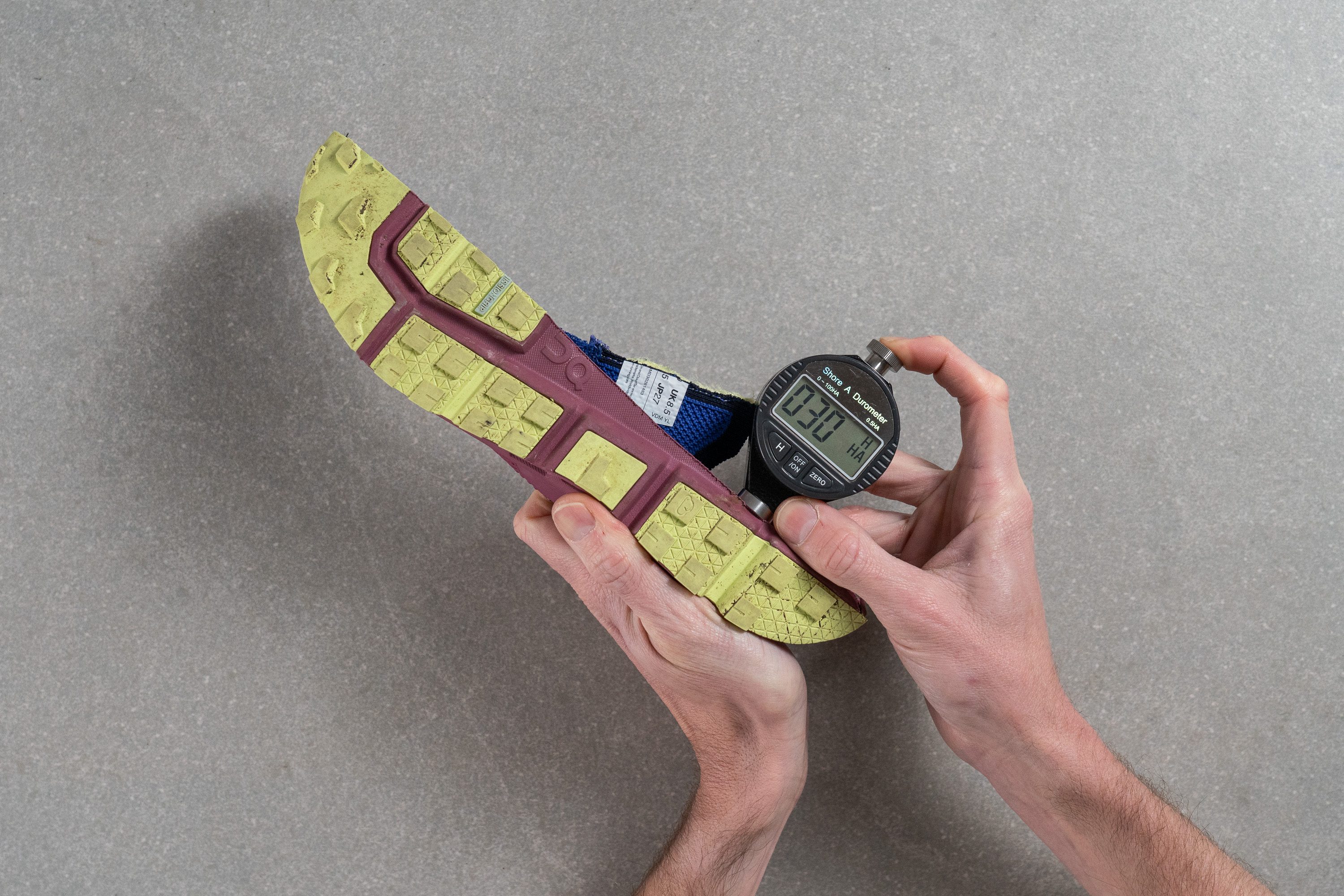
| Cloudultra 2 | 30.3 HA |
| Average | 22.0 HA |
Size and fit
Size
On Cloudultra 2 fits true to size (16 votes).
Internal length
| Cloudultra 2 | 267.7 mm |
| Average | 269.0 mm |
Width / Fit
When we first tested the Cloudultra 2 in the lab and on the trails, the toebox felt average to us. However, our job here is to measure things, so we surely created a gel mold of the shoe to check its dimensions as precisely as possible.
The widest part of the replica returned 93.4 mm on our caliper. But even though it is a smidge narrower than average, it still falls into the medium-width range and shouldn't cause issues to a medium-width foot.
But if you need as much toe space as you can get for tackling long distances on the trail, it's better to skip this On shoe for a roomier option.
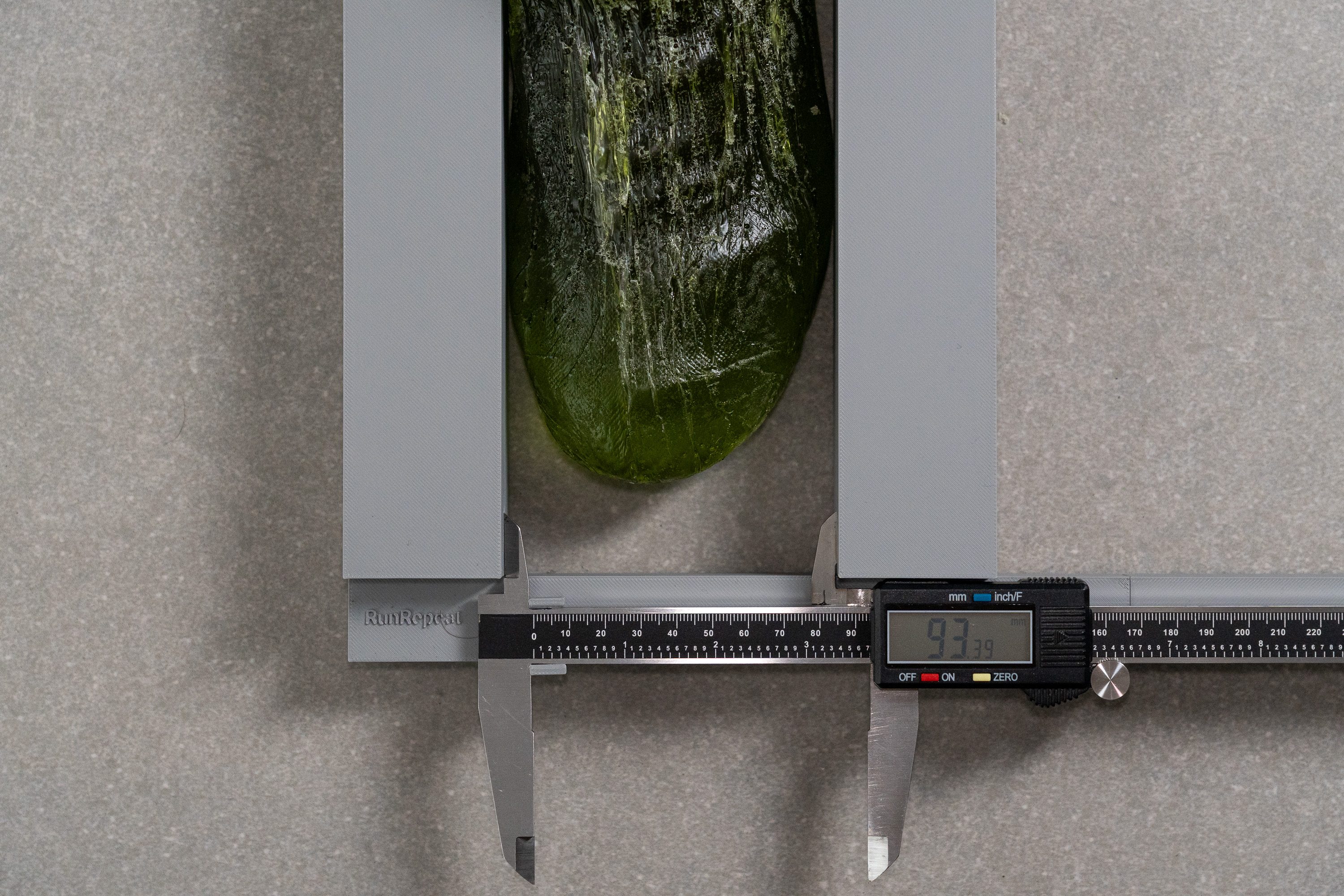
| Cloudultra 2 | 93.4 mm |
| Average | 95.6 mm |
Toebox width
The shoe's toebox space remains moderate in the big toe area as well. The width here clocked in at 72.4 mm which is within the medium range but closer to the narrow bunch.
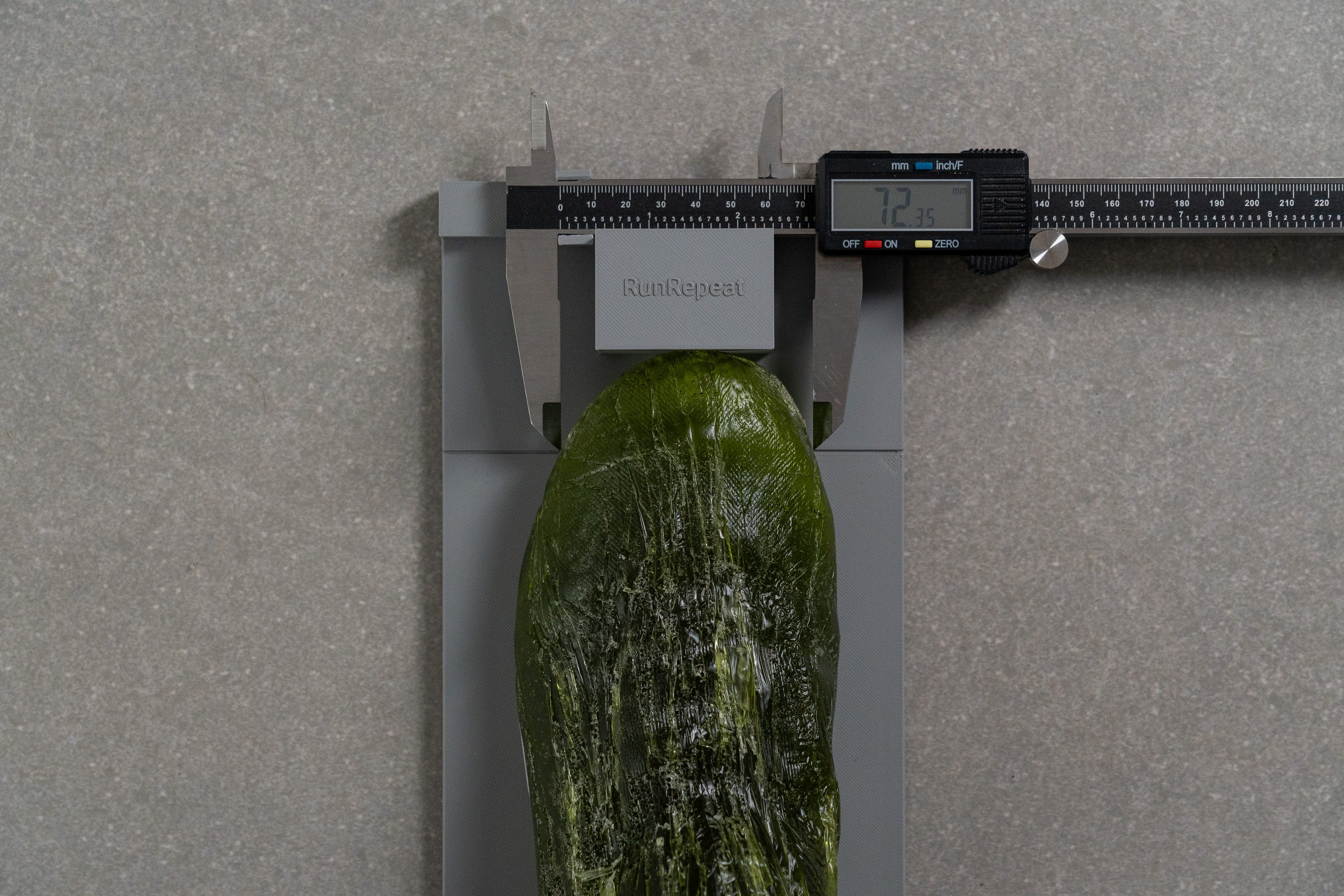
| Cloudultra 2 | 72.4 mm |
| Average | 74.6 mm |
Toebox height
The Cloudultra 2 also presented a standard amount of vertical space with a caliper reading of 27.1 mm. There should be no pressure or pinching on top of the toes in this On shoe.
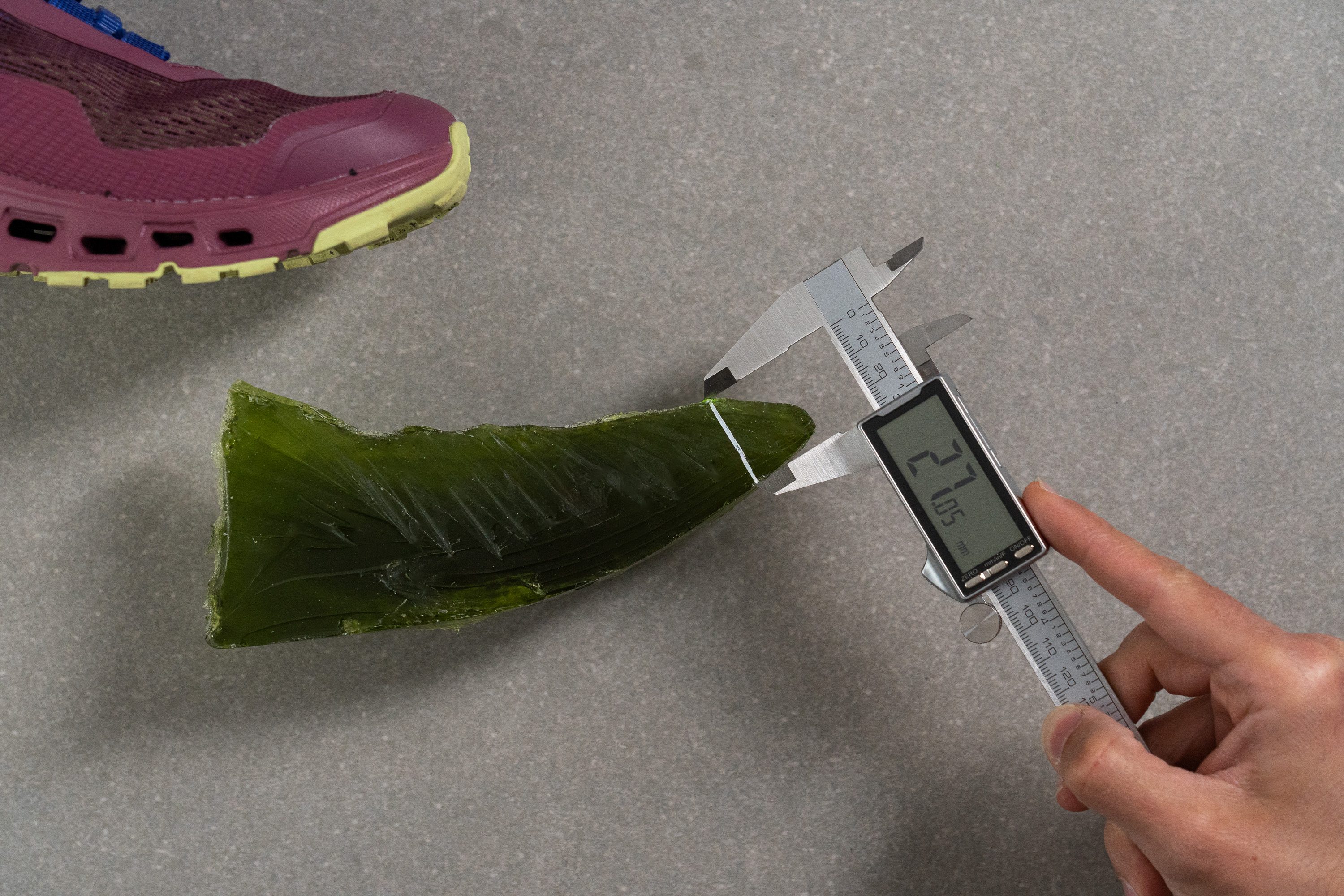
| Cloudultra 2 | 27.1 mm |
| Average | 27.0 mm |
Traction / Grip
Lug depth
The almost-indestructible Missiongrip outsole of the Cloudultra 2 features lugs that measure just 2.5 mm, which is fitting for a shoe designed for ultra distances on non-technical terrain.
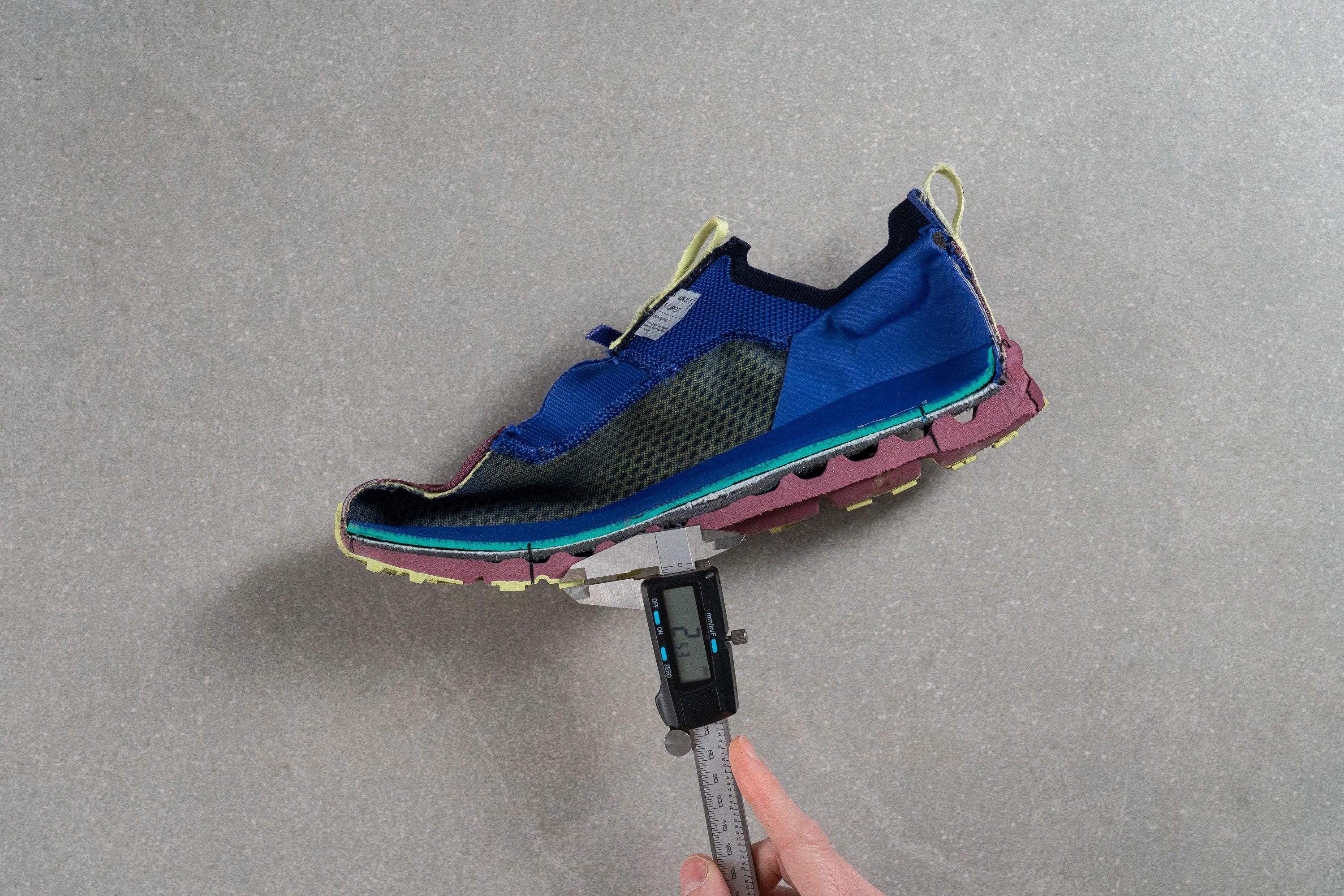
| Cloudultra 2 | 2.5 mm |
| Average | 3.5 mm |
Outsole design
The outsole resembles that of a road running shoe more than a trail shoe, with some exposed foam and On's typical central channel. The lugs are perfect squares, making them great for flat terrain but not as effective for uphill and downhill running.
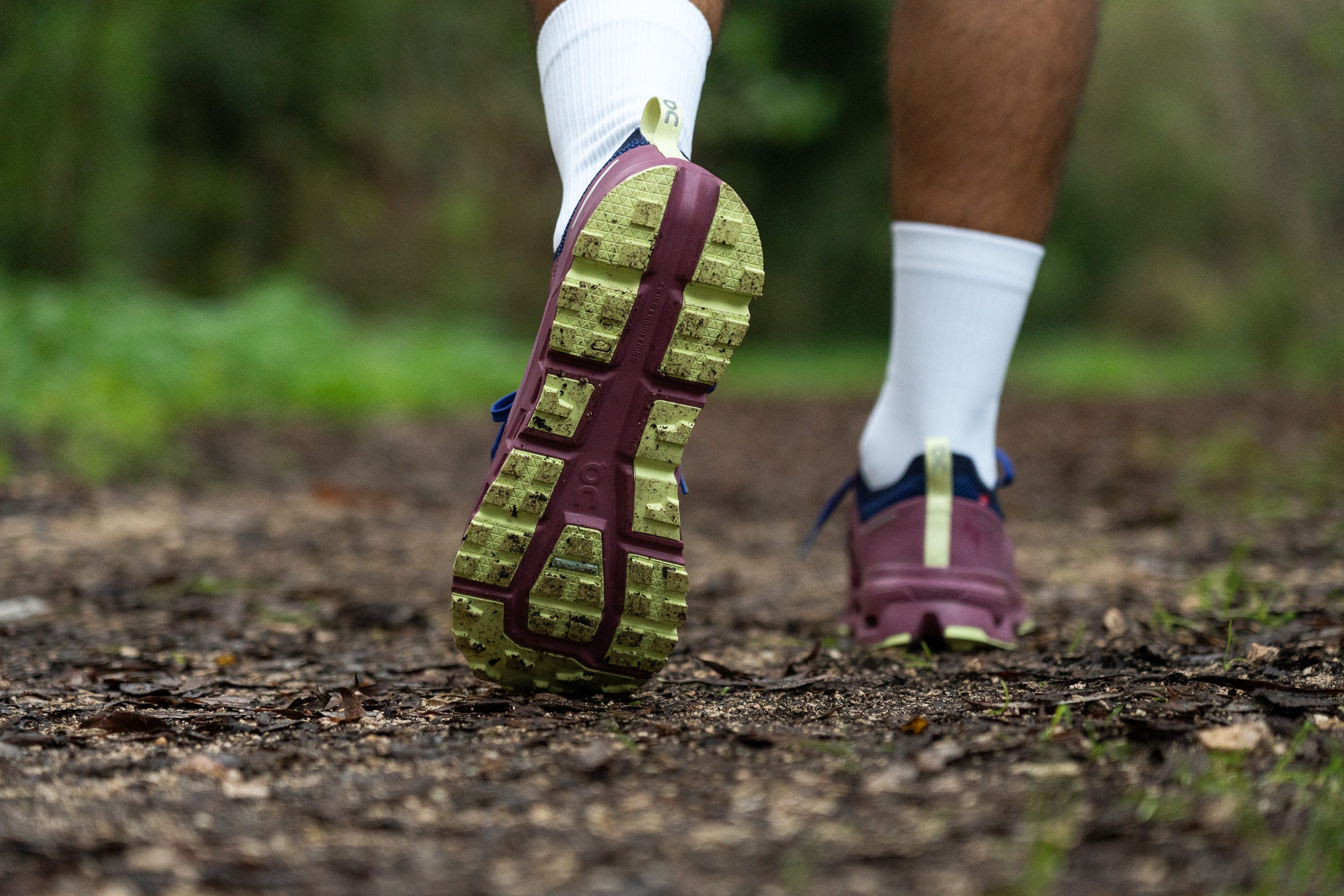
Flexibility / Stiffness
We were impressed with the flexibility in our previous torsional test, but what about its longitudinal flexibility?
In our 30-degree bend test, the Cloudultra 2 required only 8.1N to reach the desired point. That's exceptionally low, positioning this shoe as an excellent choice for hiking or walking. It's perfect for those seeking a versatile, do-it-all shoe—you can even take it to the gym!
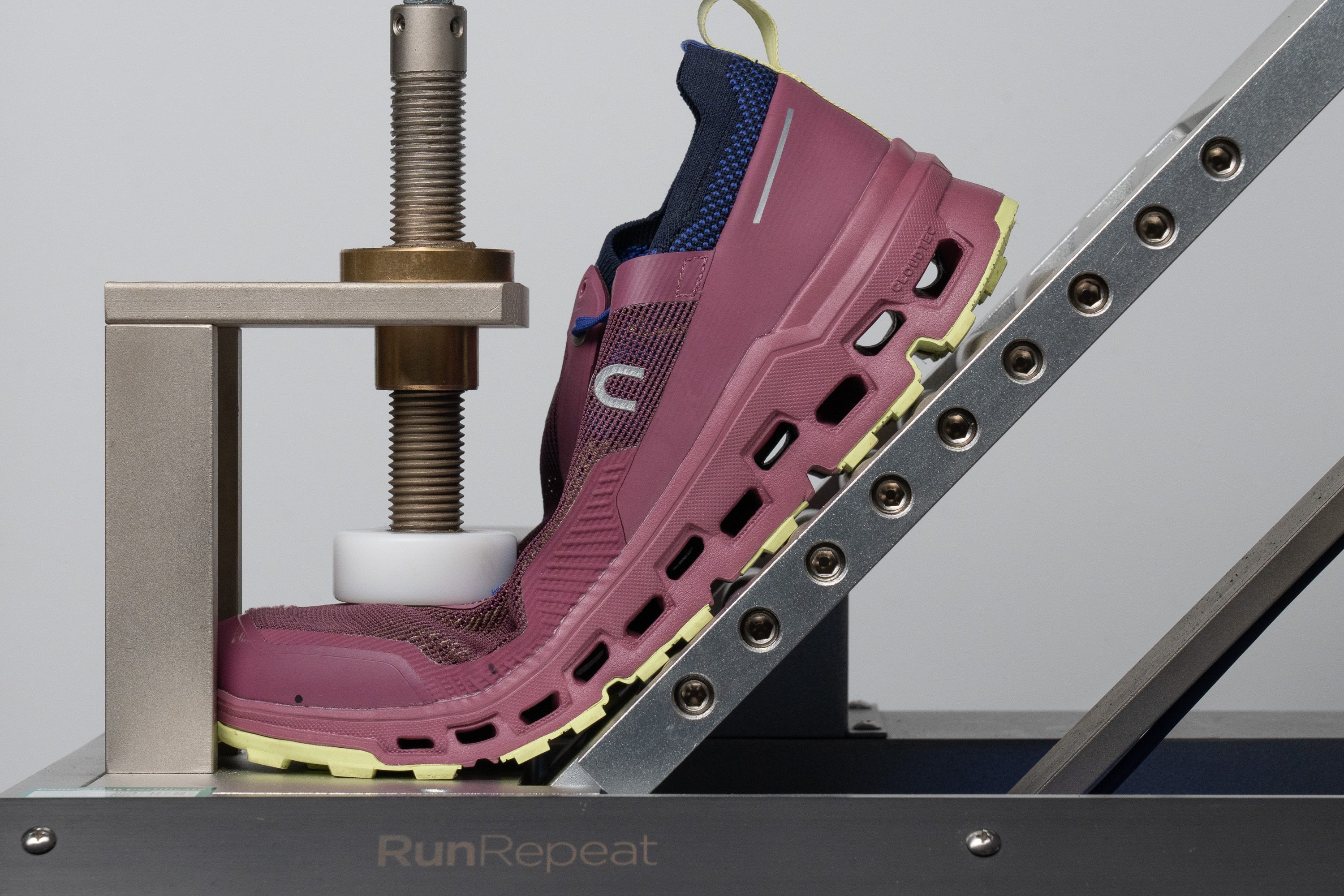
| Cloudultra 2 | 8.1N |
| Average | 14.6N |
Stiffness in cold
Under cold temperatures, we noted a slight increase, recording 22.4N.
| Cloudultra 2 | 22.4N |
| Average | 35.9N |
Stiffness in cold (%)
That's a 27.3% increase in stiffness, which might be slightly noticeable but isn't a cause for concern, especially considering the shoe's multi-purpose design.
| Cloudultra 2 | 27% |
| Average | 32% |
Weight
In terms of weight, the Cloudultra 2 hit 10.4 oz (296g) on our lab scale, which, frankly, seems a bit excessive for the amount of midsole it offers.
Even though weight might not be a major concern for some ultrarunners, shedding an ounce would have been a much-welcomed improvement for v3.
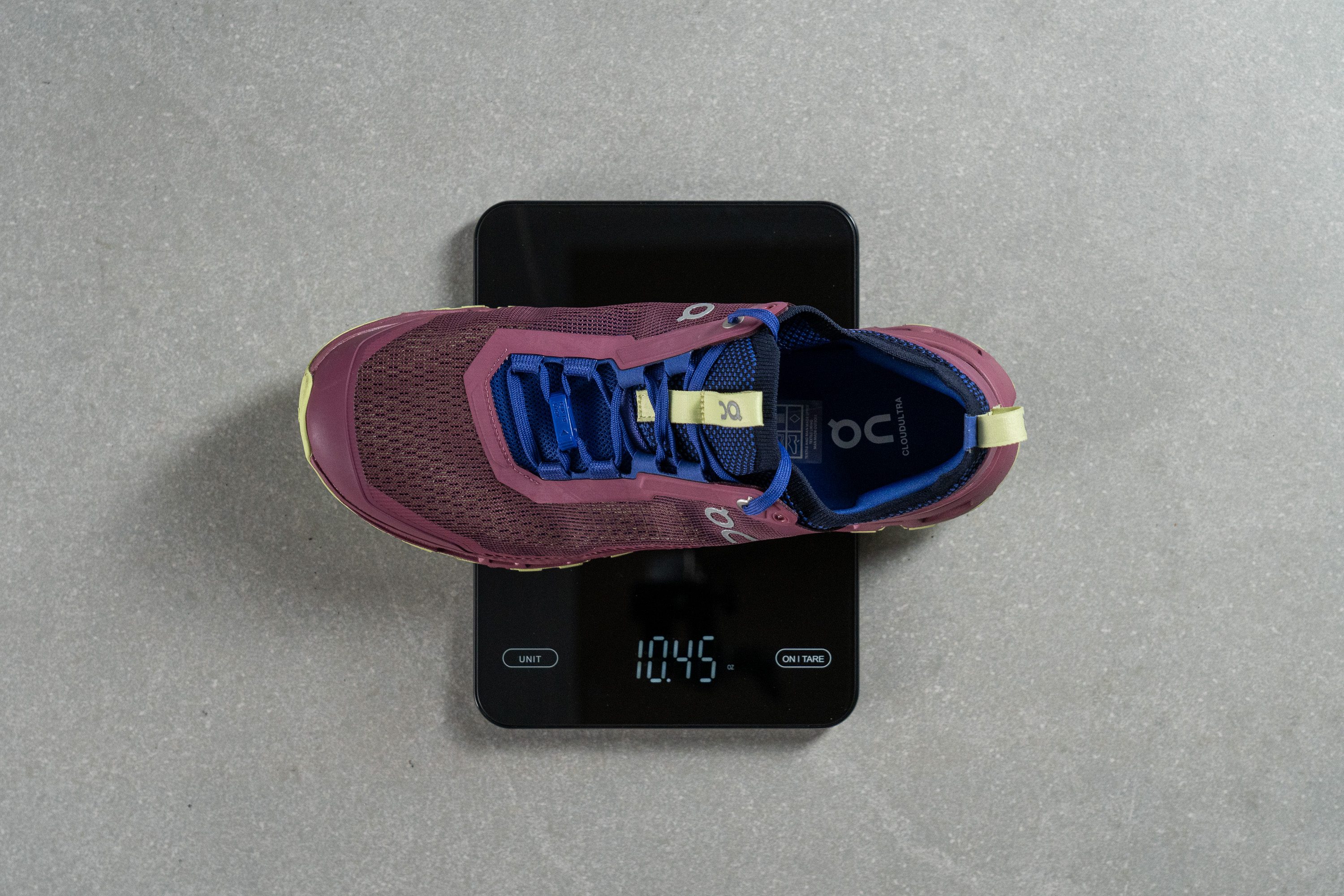
| Cloudultra 2 | 10.4 oz (296g) |
| Average | 10.2 oz (289g) |
Breathability
One of the biggest mistakes a shoe designed for ultramarathons can make is lacking breathability—after all, our feet really need airflow during those looong hours of running.
That's why we were thrilled with the outstanding breathability (5/5) the Cloudultra 2 offers. Sure, some might lean towards a denser upper in a trail shoe, but it's crucial for us to remember this shoe is made not just for trail running, but also for ultra distances.
Our light test further showcased the superb airflow of this upper. What's more, this isn't limited to the toebox—the impressive ventilation extends to the midfoot, which is a huge advantage for enduring dozens of miles without blisters and hotspots.
Now, let's zoom in under the microscope to get a closer look at this engineered mesh upper.
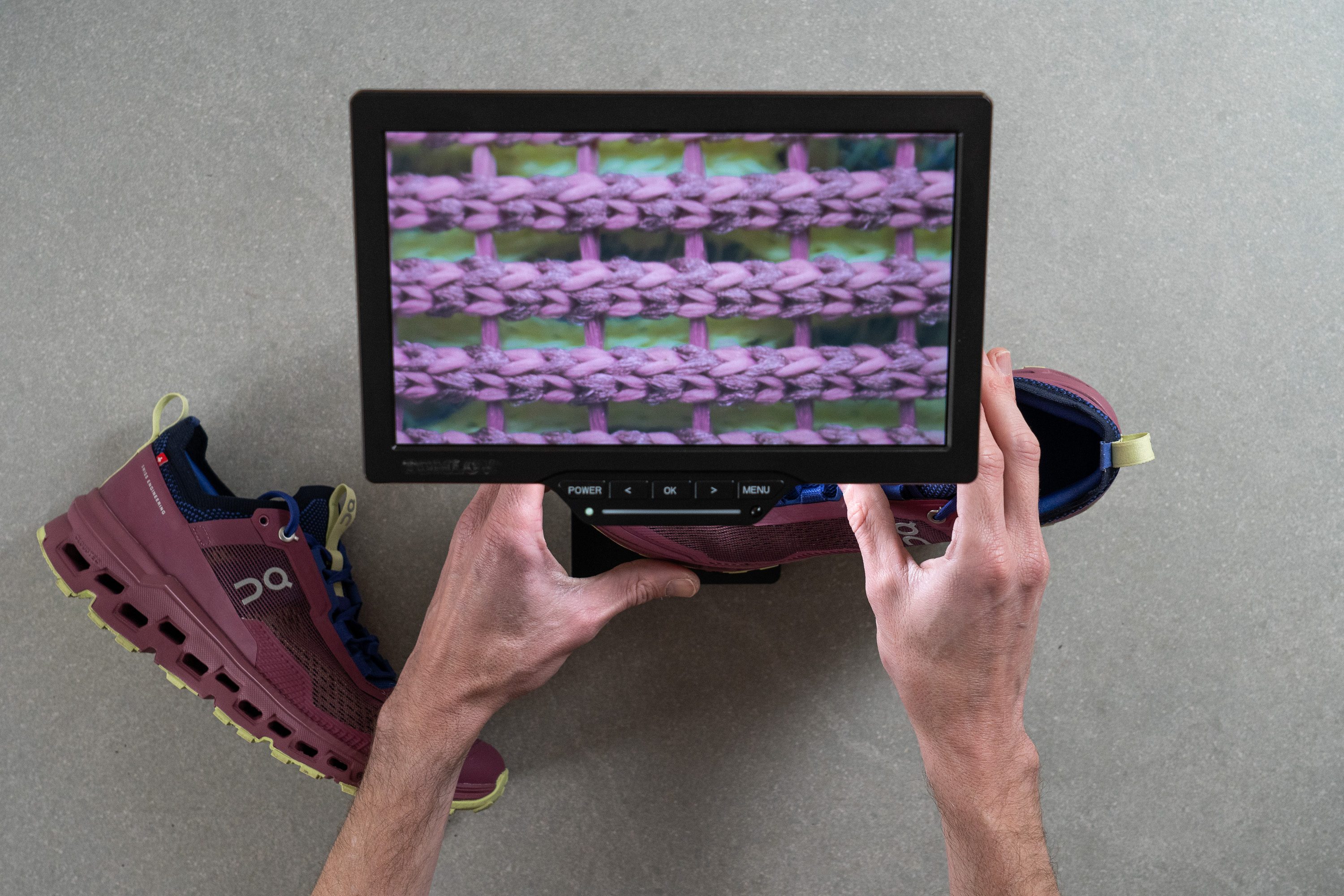
It's crafted from a multi-layered, square mesh that cleverly mixes different yarns, achieving a perfect balance of structure and ventilation.
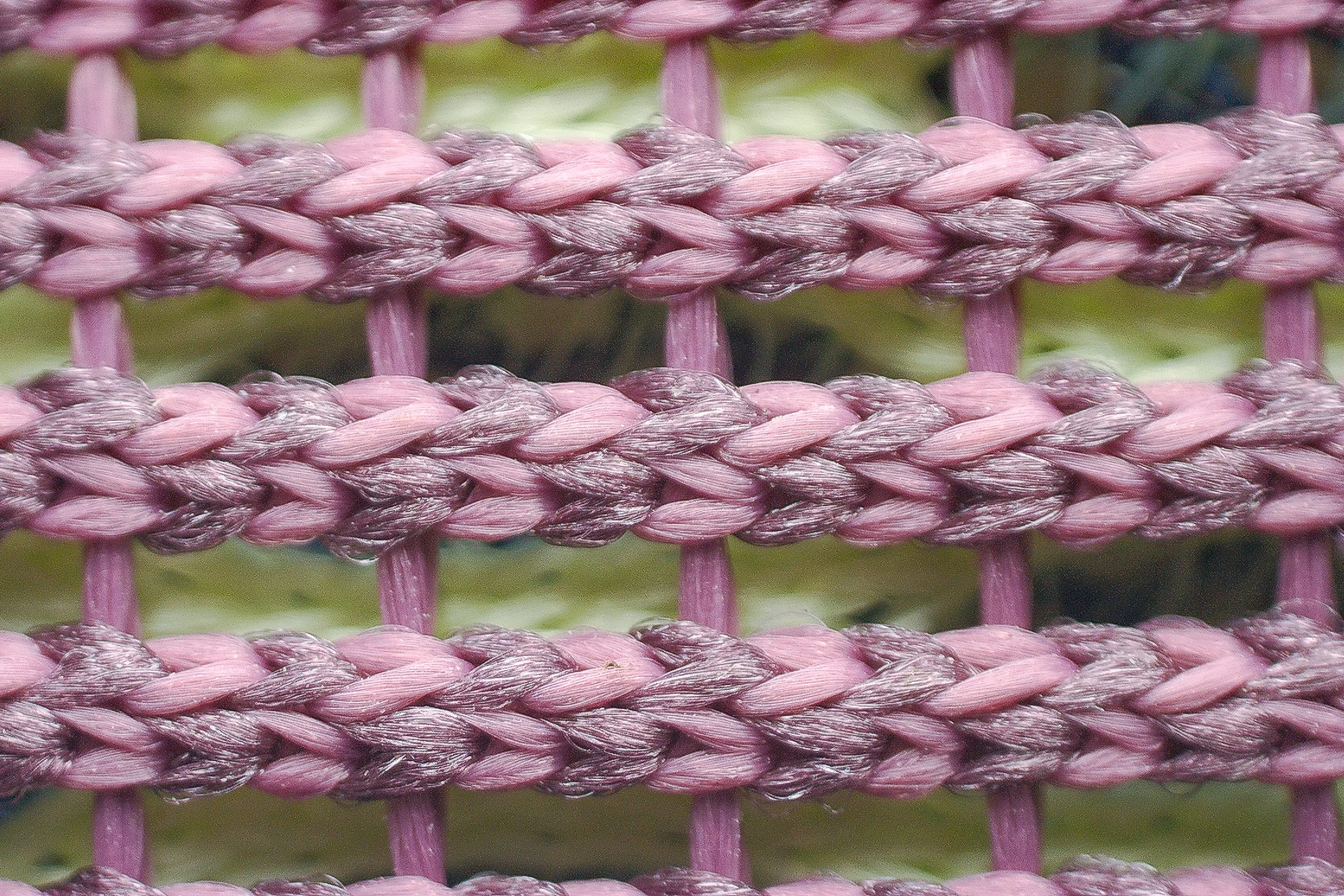
Inside, there's an additional layer that boosts comfort and durability, yet it's thoroughly perforated to maintain airflow. It's evident that On prioritized an airy upper, despite the potential trade-offs like durability.
| Cloudultra 2 | 5 |
| Average | 3.3 |
Stability
Lateral stability test
With its low stack height and a relatively firm midsole, coupled with supportive features like a rigid heel cup just above the foam in the heel that envelops the entire shoe, we couldn't help but enjoy a remarkably stable ride.
Can this shoe work for those needing support? It really depends on the extent of your pronation or supination. However, for most runners, we think so.
Torsional rigidity
Many trail running shoes tend to favor a rigid design, and we anticipated the same from the Cloudultra with its firm midsole and TPU Speedboard plate.
Surprisingly, we discovered the exact opposite—a flexibility rating of 2 out of 5. The shoe is impressively flexible from a torsional perspective, making it a fantastic choice for those who get sore feet from rigid shoes with stiff components.
This flexibility also enhances the shoe's performance during turns, as being too rigid can hinder agility.
| Cloudultra 2 | 2 |
| Average | 3.6 |
Heel counter stiffness
We also rated the Cloudultra 2 low in the heel counter stiffness test, scoring it just 2 out of 5. This is excellent news for those who prefer shoes without stiff heel counters.
| Cloudultra 2 | 2 |
| Average | 3 |
Midsole width - forefoot
The forefoot measures 110.9 mm, which is pretty average. On typically makes narrow shoes, so we're pleased with this measurement. It's ideal for running straight and also works well for taking sharp corners.
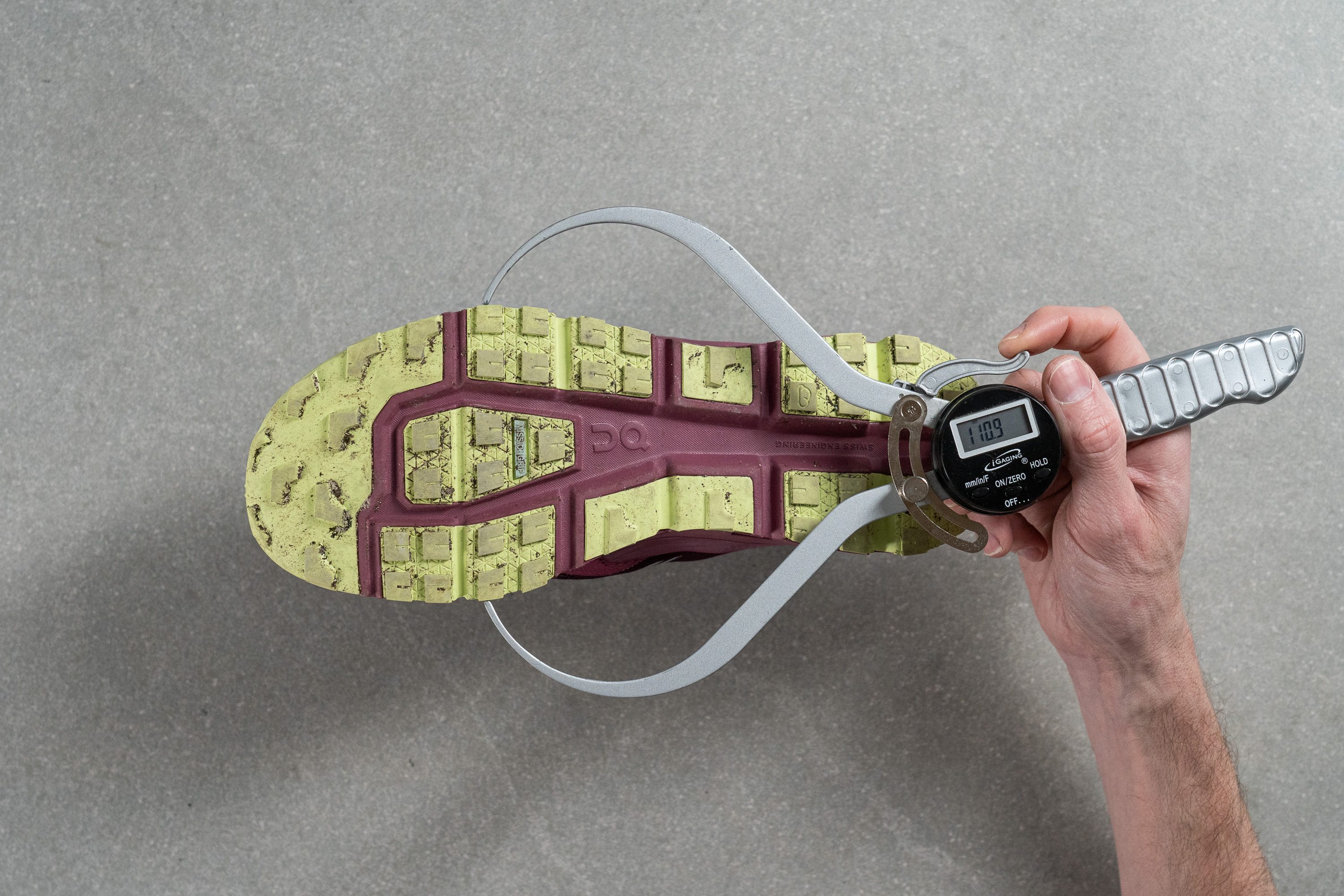
| Cloudultra 2 | 110.9 mm |
| Average | 112.8 mm |
Midsole width - heel
However, the heel is quite narrow at 85.8 mm, which could pose a stability issue for heel strikers needing more support. If a wide heel is a must-have for you, you might want to consider the Brooks Caldera 6. It offers a much larger platform and is also geared for ultra distances.
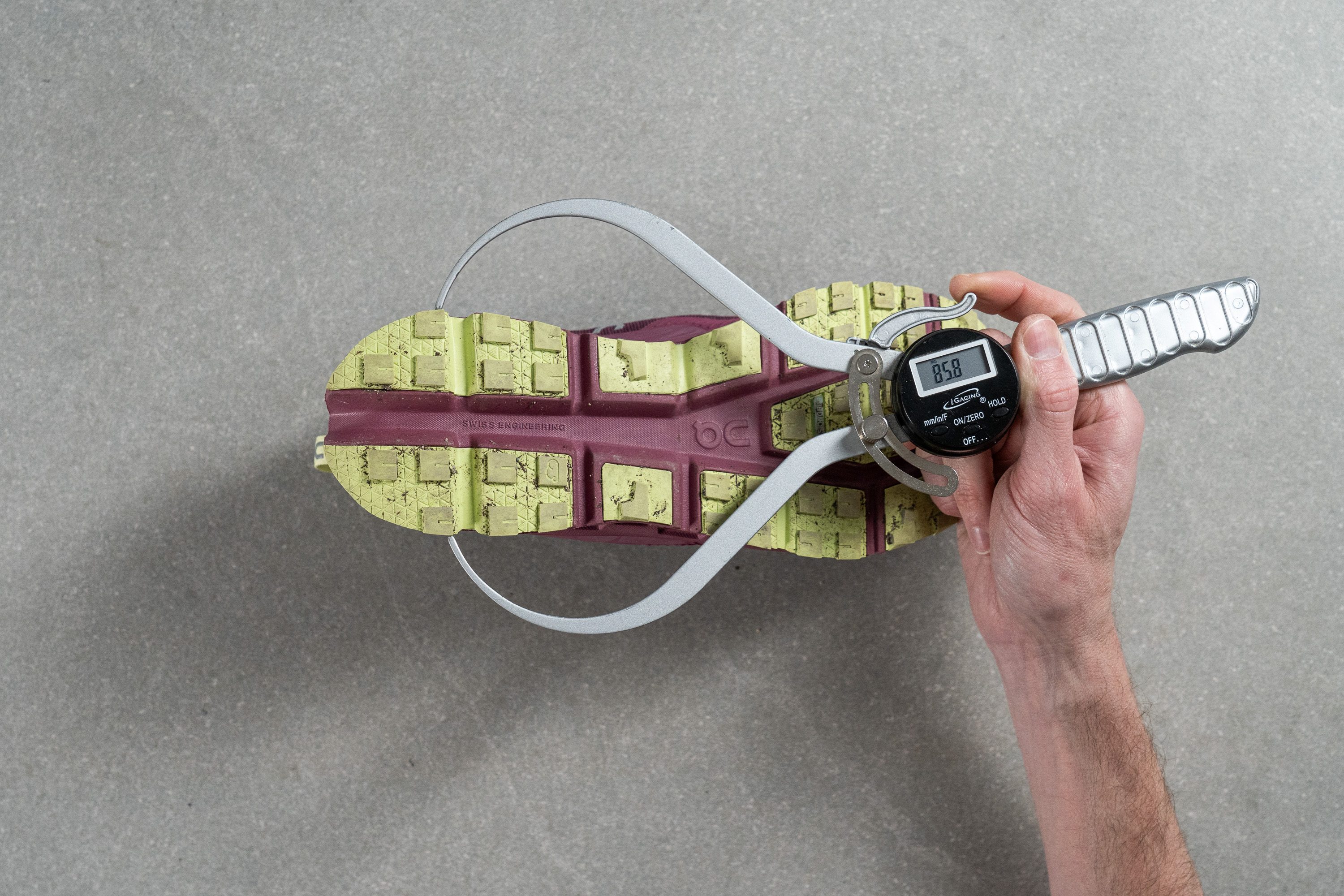
| Cloudultra 2 | 85.8 mm |
| Average | 89.9 mm |
Durability
Toebox durability
Now, you might think that with such massive ventilation, durability would take a hit, right?
But to our surprise, when we ran the Dremel test (3.2N @ 5K RPM) in the lab, it scored 2 out of 5. While this is below average and might let down some trail runners, we actually see it as a positive outcome for a mesh this breathable.
The multi-layer construction guarantees that even if the upper's top layer suffers damage, there will still be underlying layers maintaining the shoe's structure and shape.
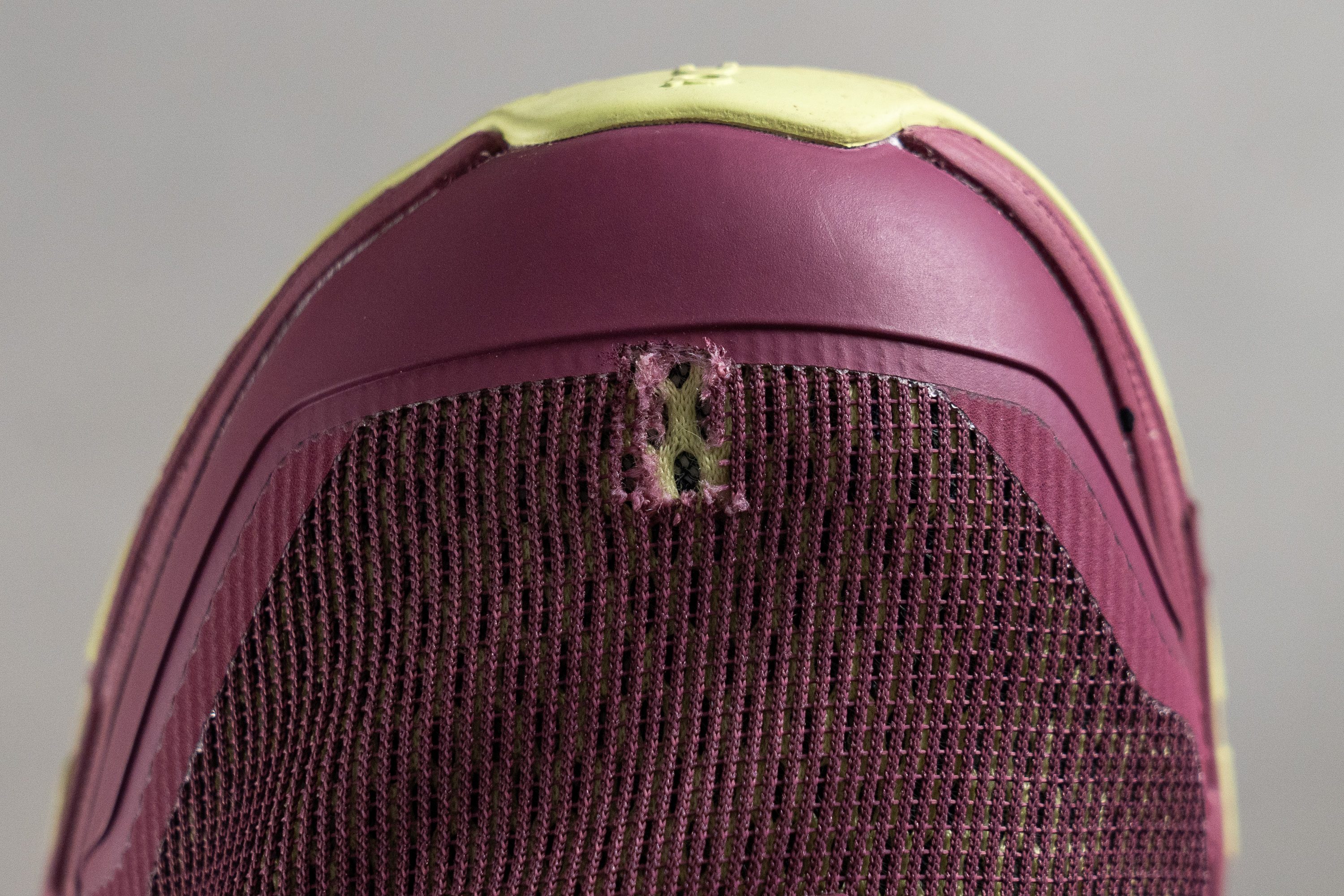
| Cloudultra 2 | 2 |
| Average | 3.1 |
Heel padding durability
The heel padding area scored a solid 3 out of 5 in the same Dremel test—a really good result that promises long-lasting durability in this part of the shoe.
So, you can feel confident knowing it's highly unlikely to wear out a hole, regardless of the socks you choose.
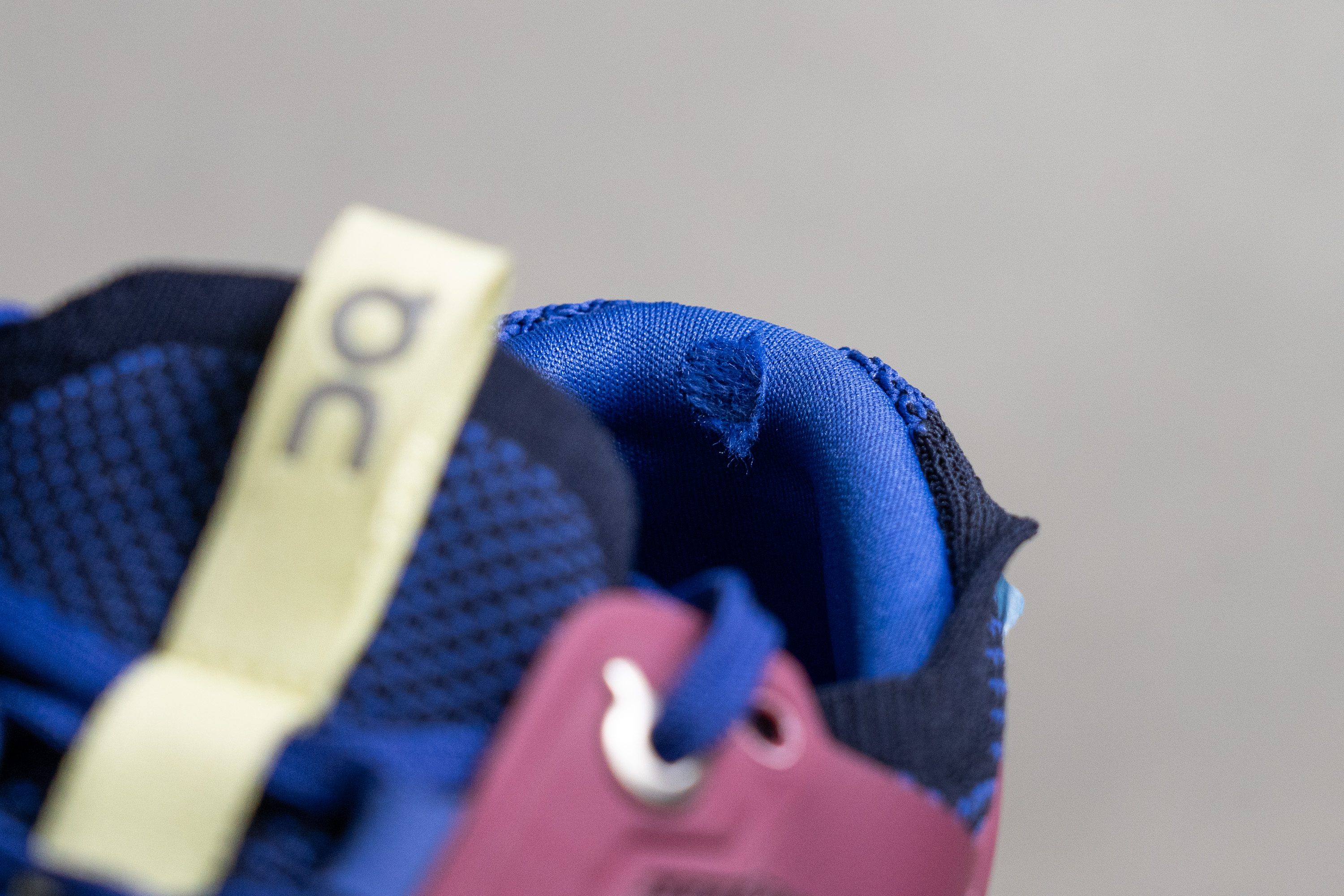
| Cloudultra 2 | 3 |
| Average | 3 |
Outsole hardness
Now, let's take a look at the outsole, starting with its hardness.
In our Shore C durometer test, we clocked it at 82.4 HC. This is slightly softer than most shoes, but it's still quite hard and should offer good durability.
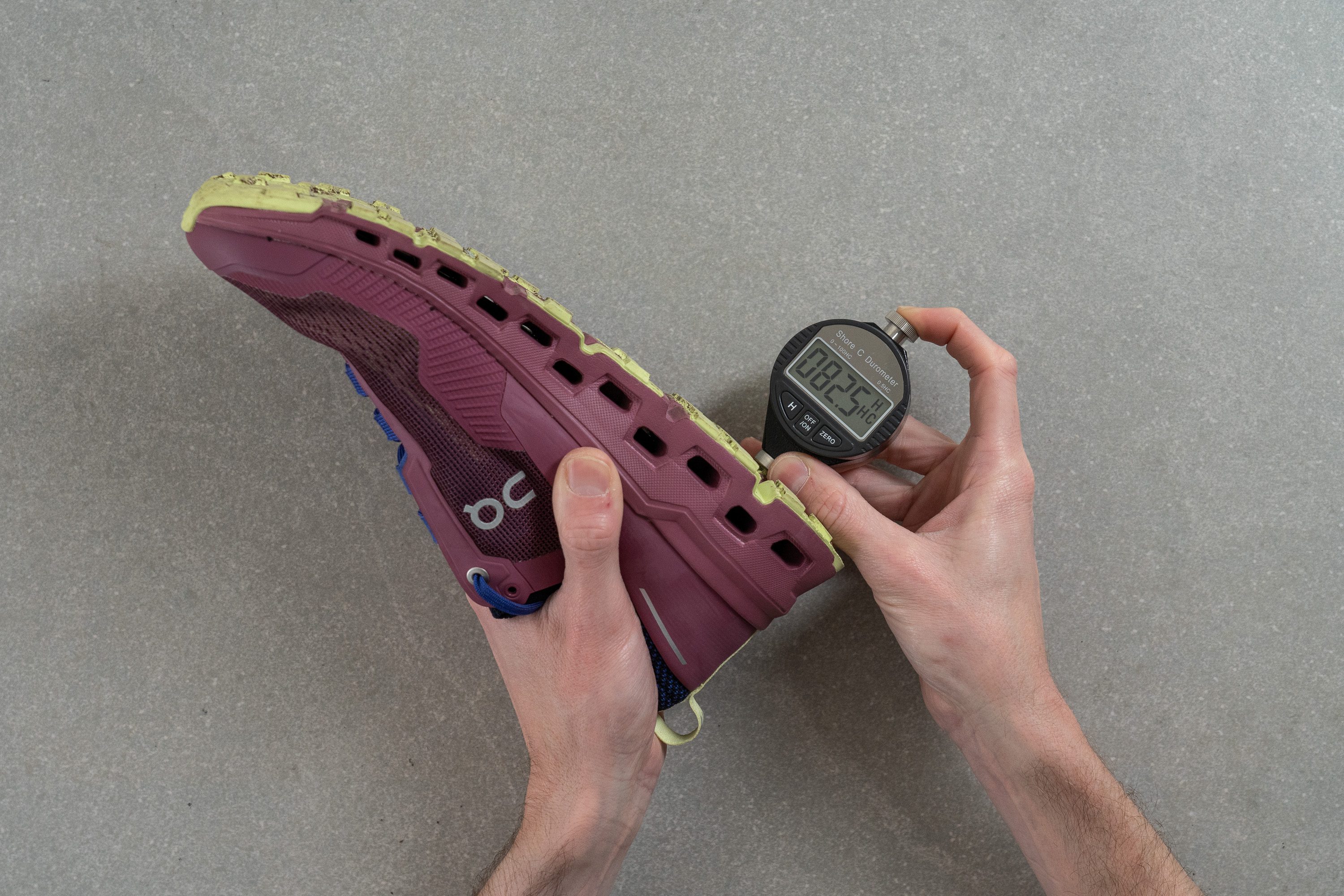
| Cloudultra 2 | 82.4 HC |
| Average | 85.8 HC |
Outsole durability
On is known for their premium pricing, so naturally, we expect top-notch features. While there have been times we've felt let down, this isn't one of them. The Missiongrip outsole demonstrated a performance that's nothing short of miraculous in our tests.
After putting it through the Dremel test, we observed a mere 0.1 mm of rubber wear, which is truly breathtaking.
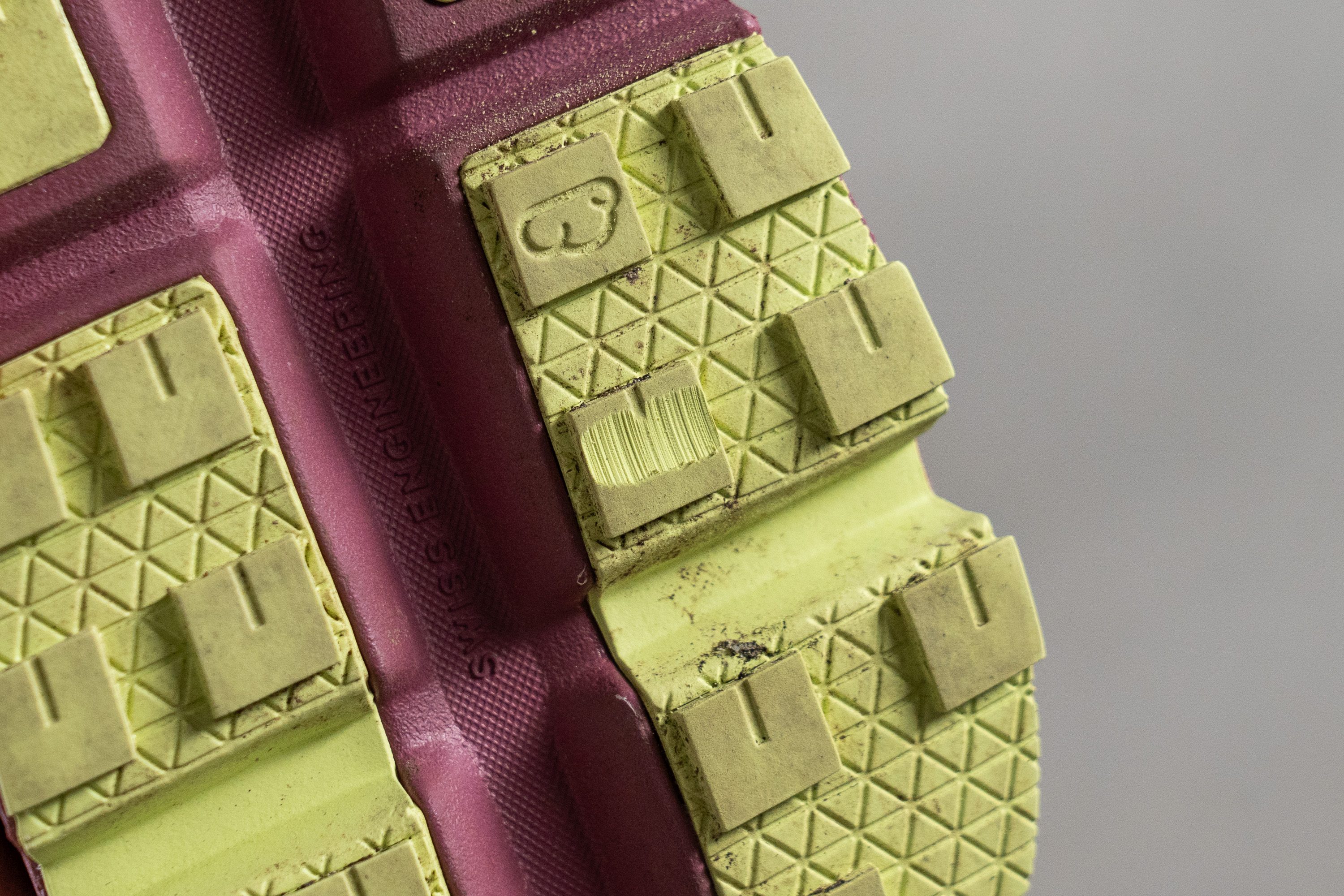
| Cloudultra 2 | 0.1 mm |
| Average | 0.9 mm |
Outsole thickness
Finally, we measured the thickness and it came in at 1.7 mm. Given the incredible durability of this outsole, that thickness now seems almost excessive.
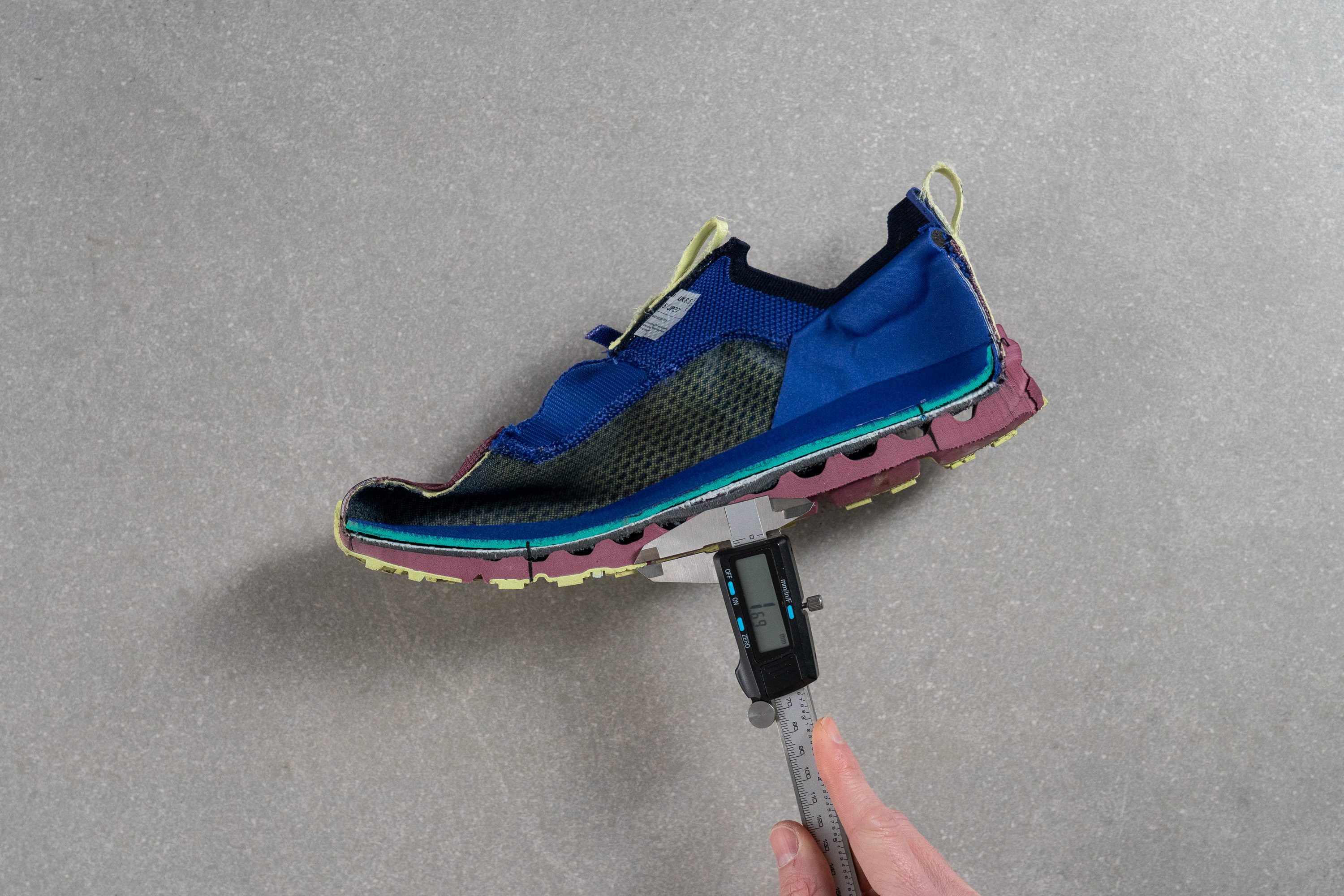
| Cloudultra 2 | 1.7 mm |
| Average | 2.2 mm |
Misc
Insole thickness
We observed that the insole is a bit thinner than what we typically see, coming in at a measurement of 3.6 mm.
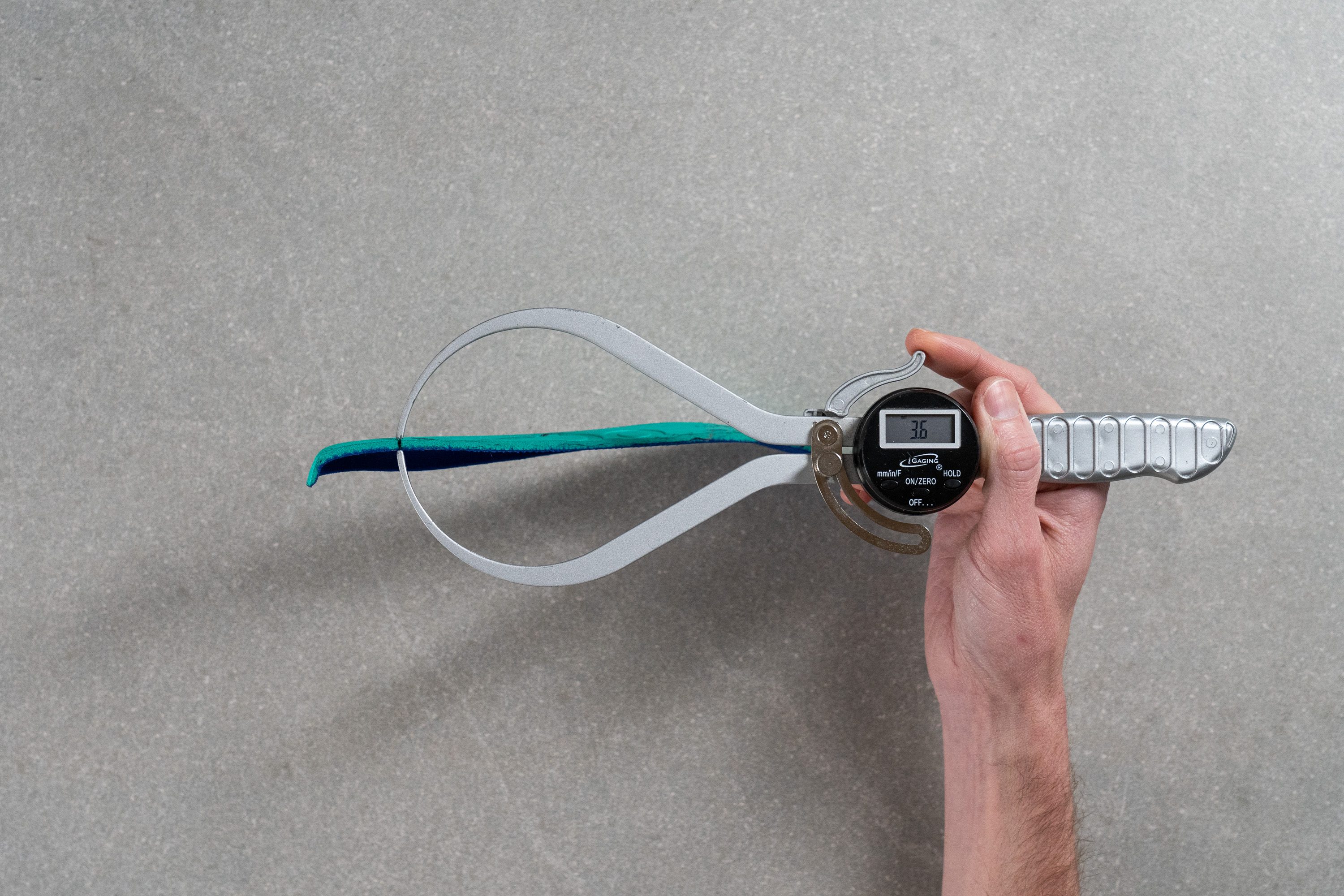
| Cloudultra 2 | 3.6 mm |
| Average | 4.7 mm |
Removable insole
The insole of the Cloudultra 2 can be easily taken out as it's not glued to the midsole. This means if you need extra arch support, you can use your custom orthotics with these shoes.
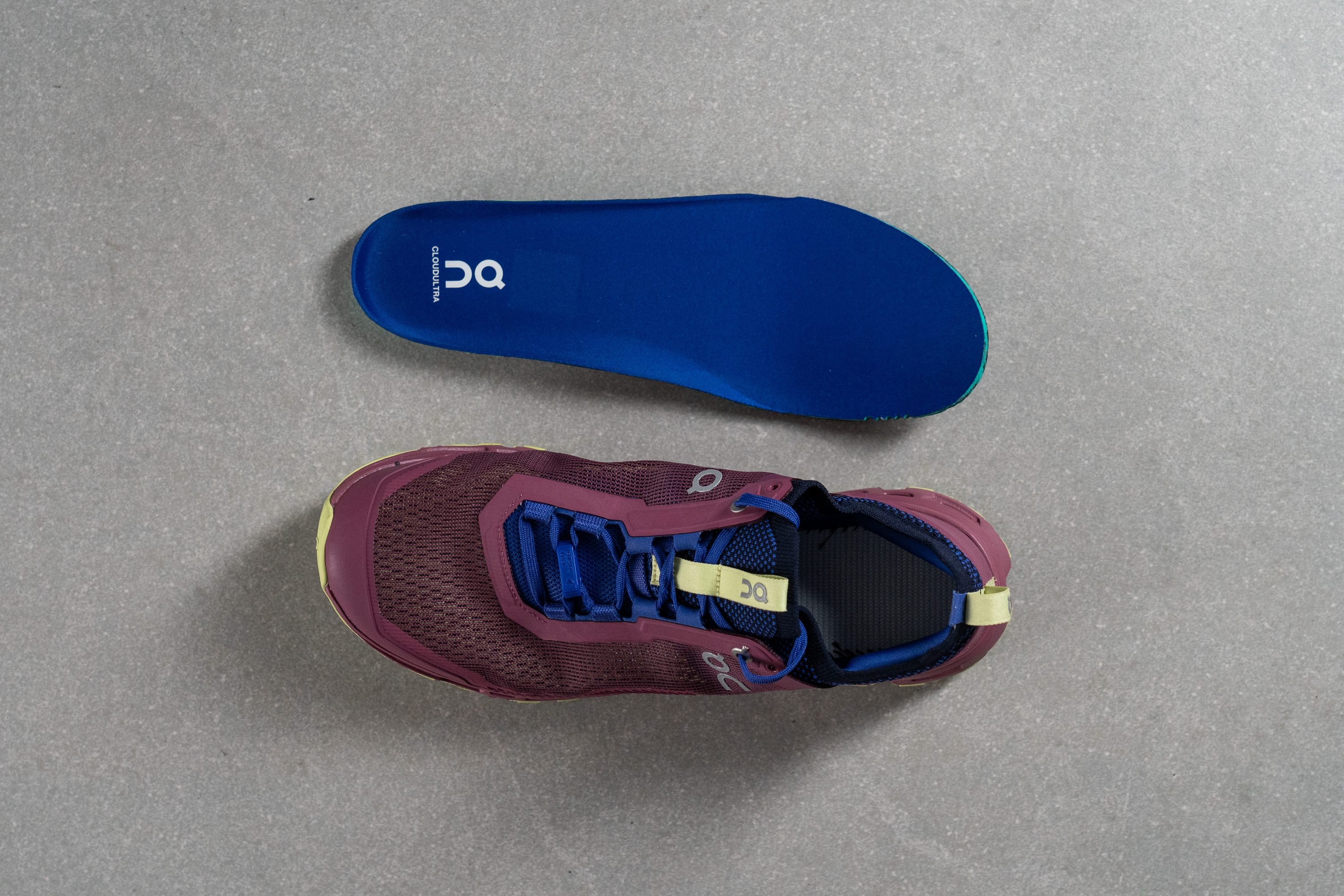
| Cloudultra 2 | Yes |
Midsole softness in cold
After storing the shoe in the freezer for 20 minutes next to our ice creams, we conducted another durometer test. The foam, measuring at 30.5 HA, seemed almost unchanged to us, even during our subsequent testing.
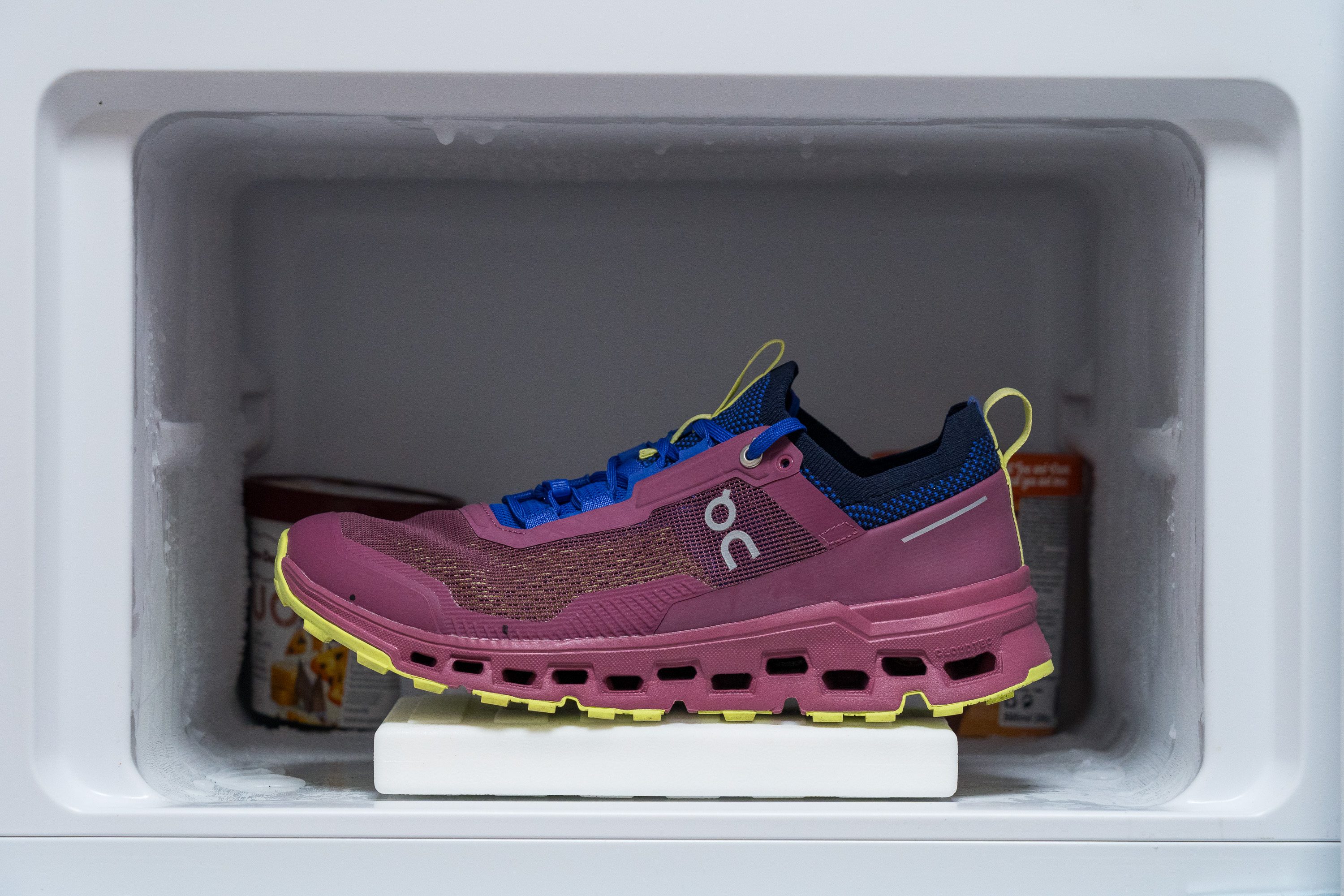
| Cloudultra 2 | 33.4 HA |
| Average | 27.4 HA |
Midsole softness in cold (%)
That's just a minor 10.3% difference, making it absolutely imperceptible to anyone, regardless of how chilly it gets outside. It appears to us that blending EVA, which typically underperforms in cold temperatures, with OBC was a brilliant move.
| Cloudultra 2 | 10% |
| Average | 26% |
Reflective elements
The shoe comes with bright reflective On logos, making sure you're visible at night. Lovely!
| Cloudultra 2 | Yes |
Tongue padding
On opted to slim down the Cloudultra by skimping on tongue padding, resulting in a really thin 2.7 mm thickness.
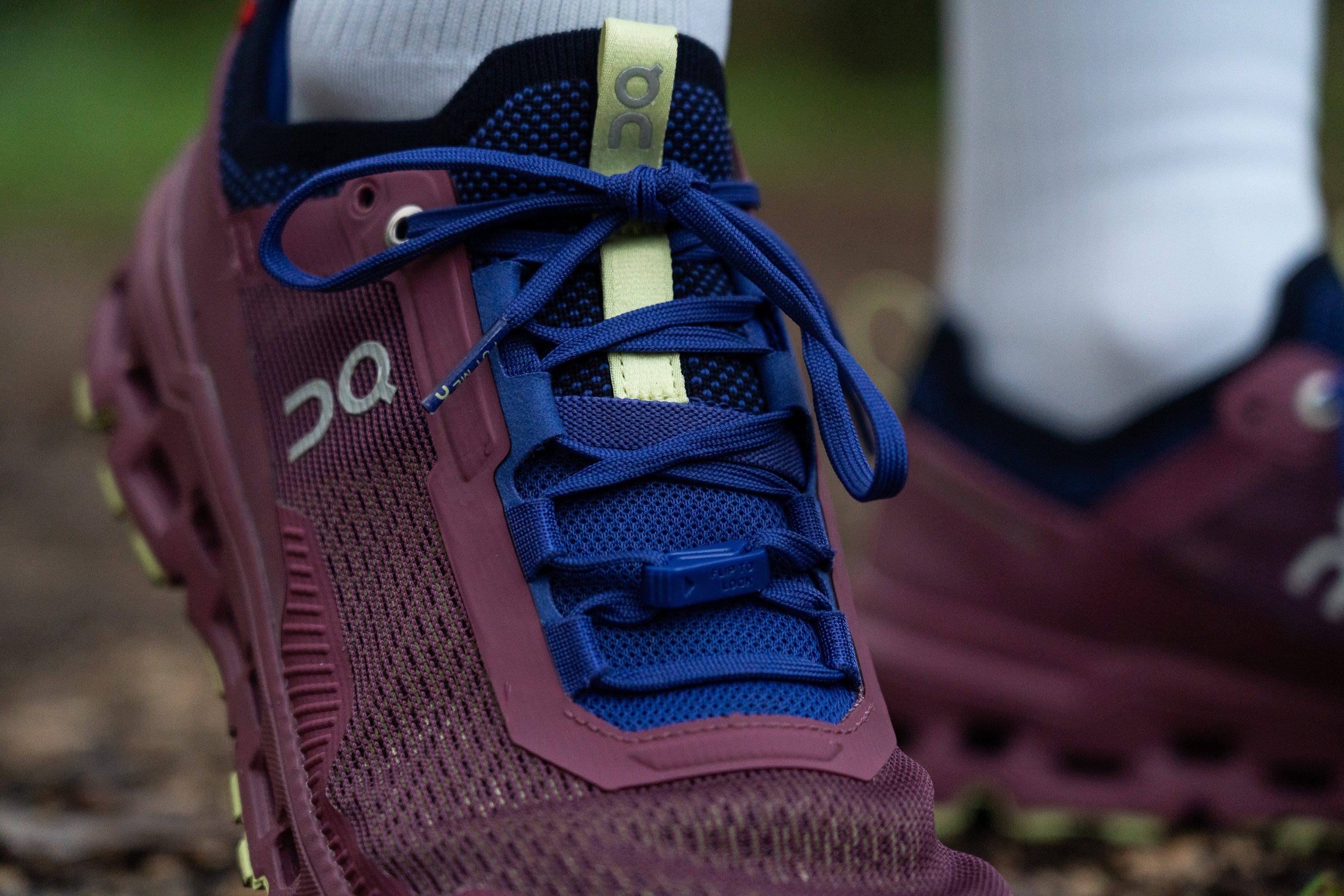
This could be a problem for those who often face instep issues, like lace bite.
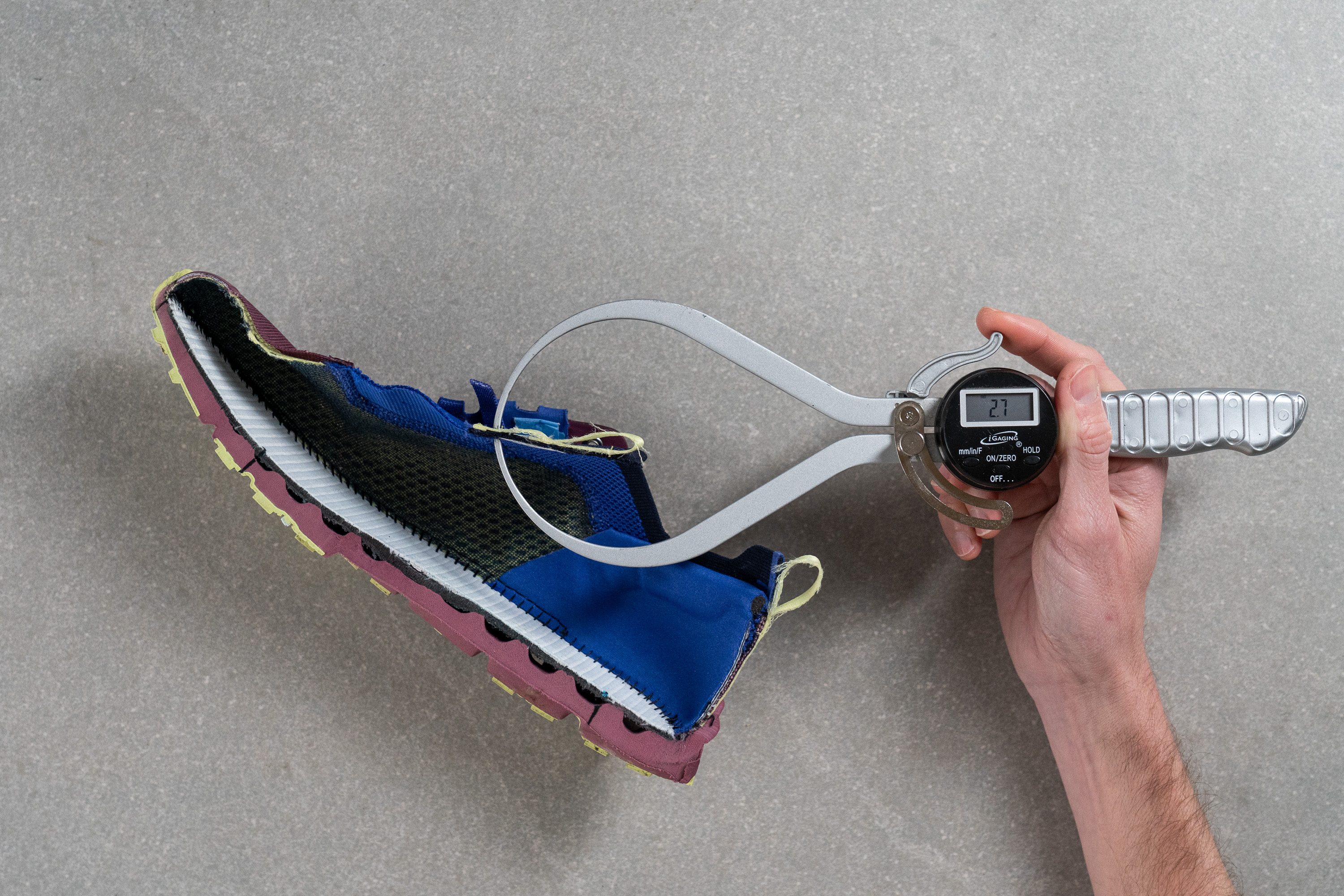
| Cloudultra 2 | 2.7 mm |
| Average | 6.4 mm |
Tongue: gusset type
The tongue boasts a sock-like design, seamlessly integrated into the shoe—perfect for those seeking a snug, unified fit.
It's also fantastic for trail running, especially amidst small rocks and debris, as it keeps them from getting inside the shoe.
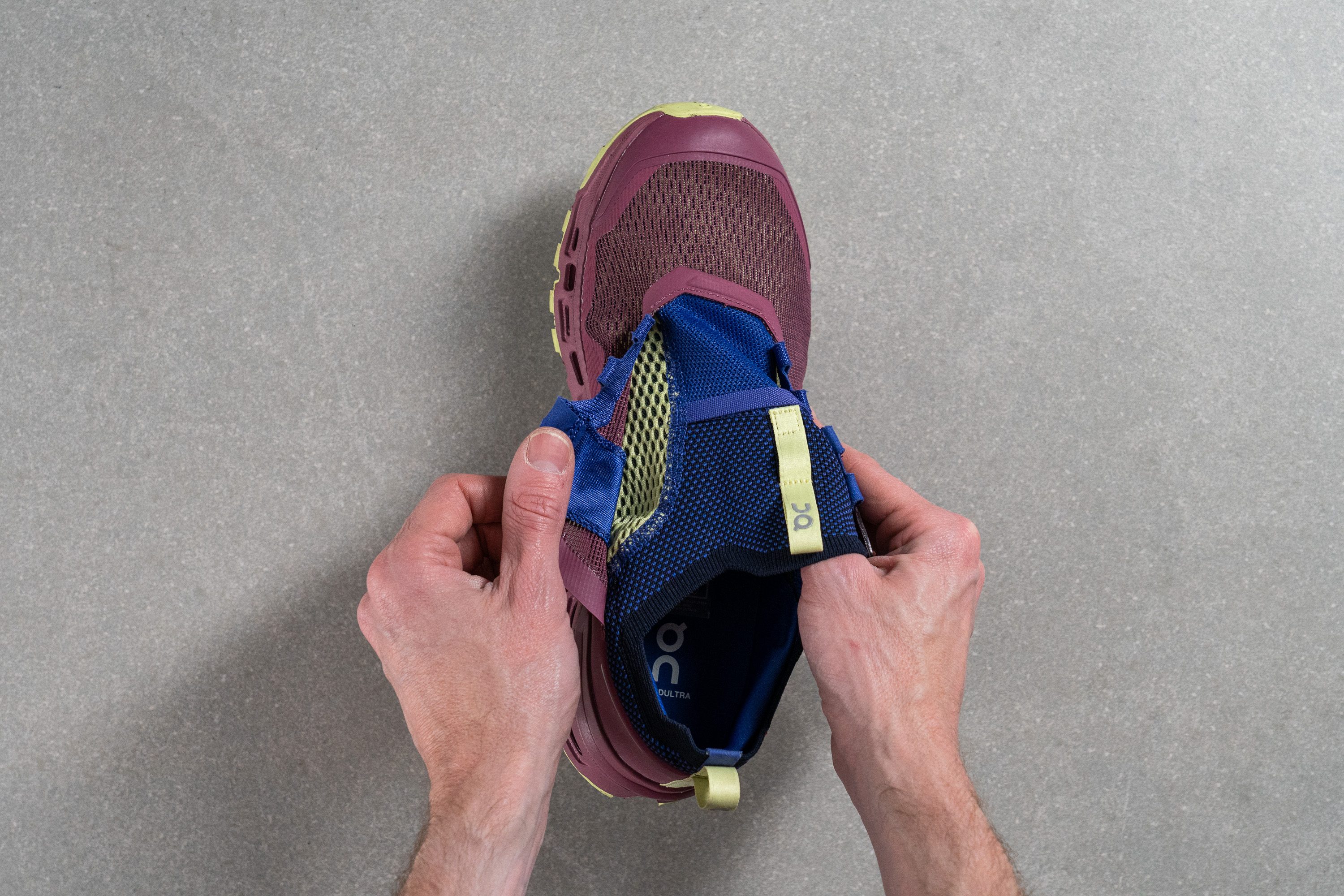
| Cloudultra 2 | Sock like |
Heel tab
At the back, there's a handy finger-loop heel tab that makes it easier to slide your feet into the shoe.
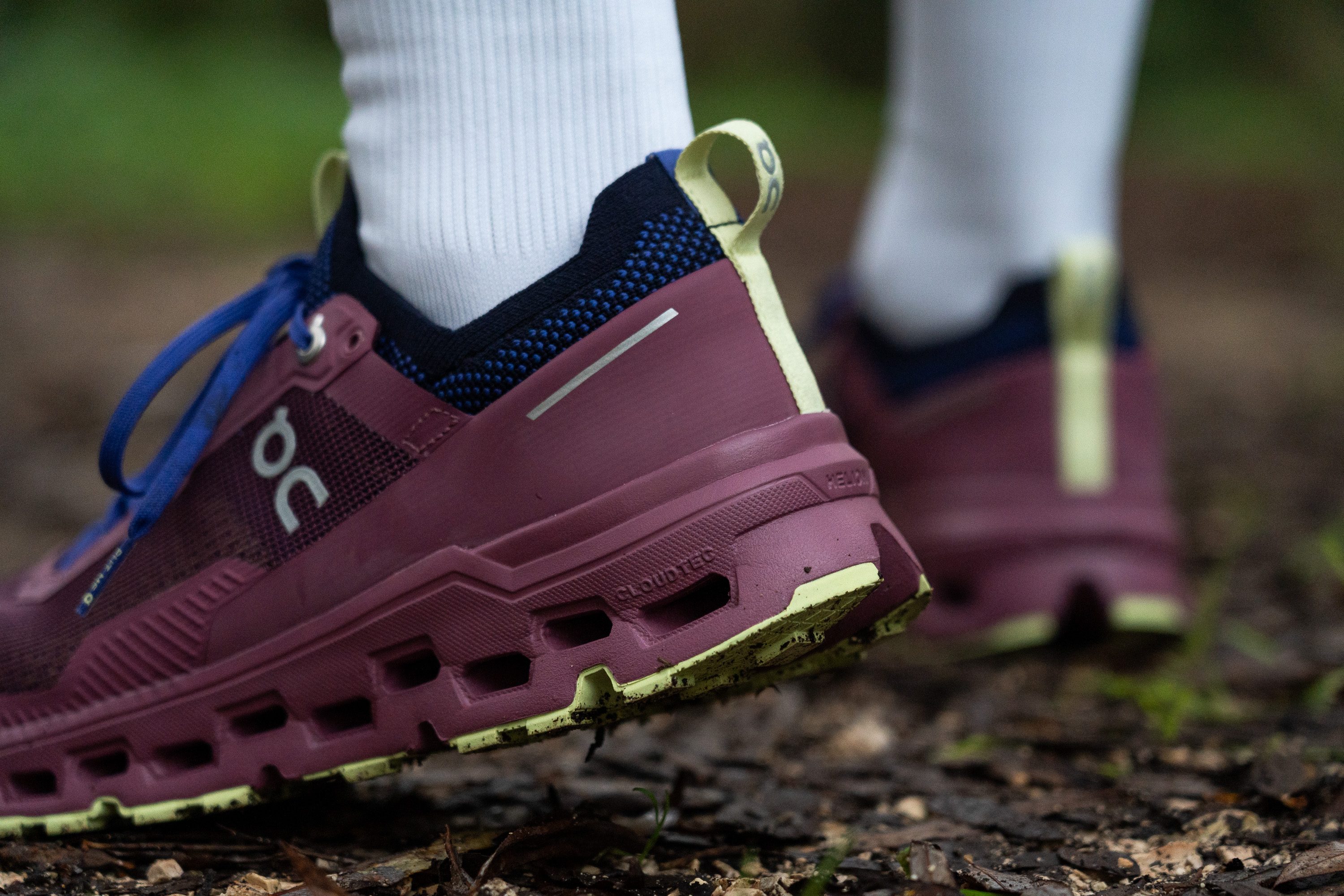
| Cloudultra 2 | Finger loop |

